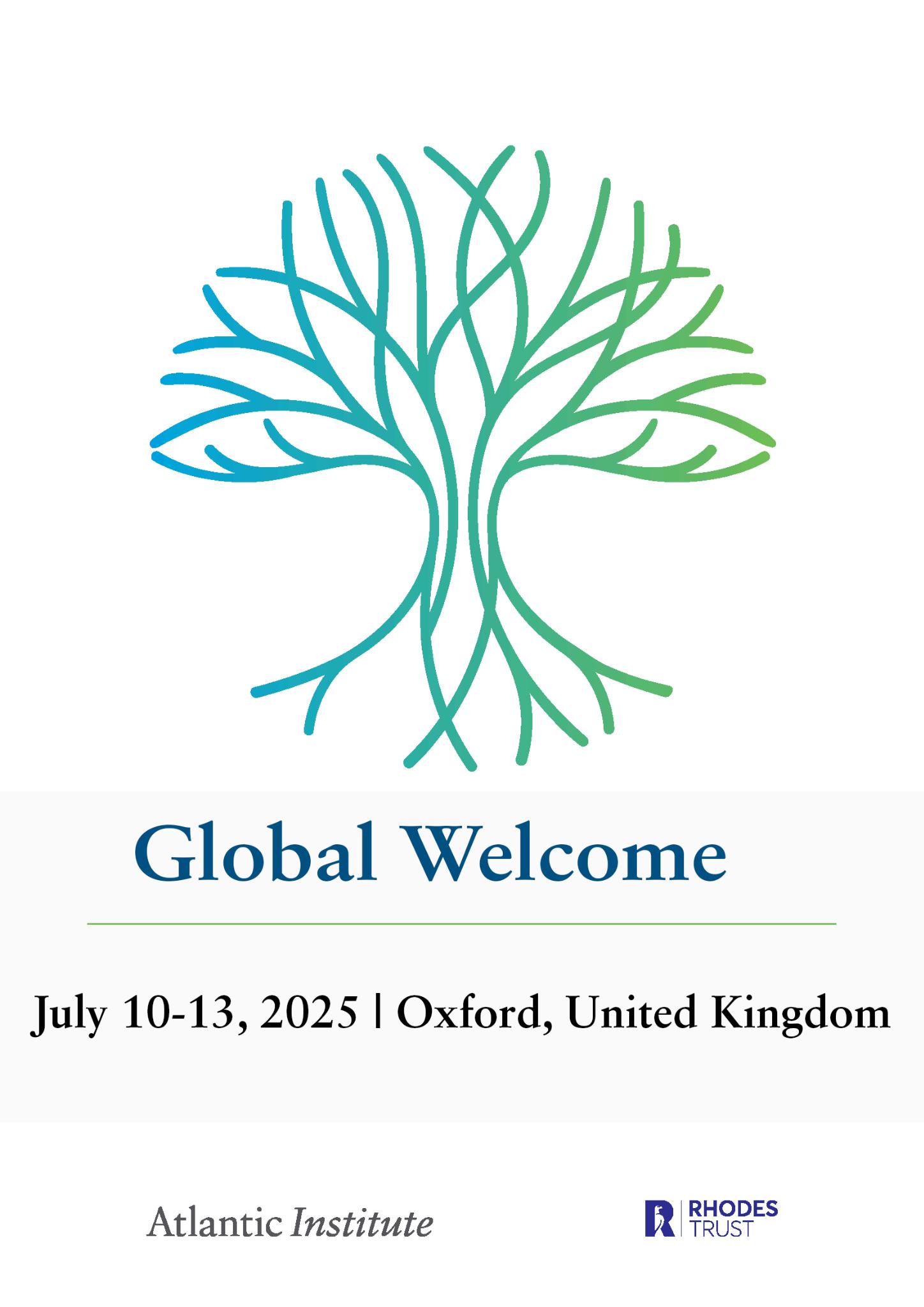

Welcome
We are delighted to welcome you to Oxford for the Global Welcome.
This convening marks the official beginning of your lifelong journey as an Atlantic Fellow, joining a global community of more than 1,000 leaders from nearly 100 countries. Representing diverse geographies, sectors, cultures, and lived experiences, this is a truly interdisciplinary community. Regardless of your background, we are united by a shared commitment to building fairer, healthier, and more inclusive societies.
During the three-day convening, the Atlantic Institute will provide meaningful opportunities to deepen your understanding of equity-related issues and connect with fellow Atlantic Fellows, the Institute’s team, and our partners here in Oxford. You will engage with Oxford’s academic networks and community groups, and explore the potential of Extended Reality in our XR Lab at Rhodes House.
This booklet includes information about your journey to Oxford, and what to expect when you arrive. We are looking forward to an incredible time together and wish you a safe journey
Warmly,
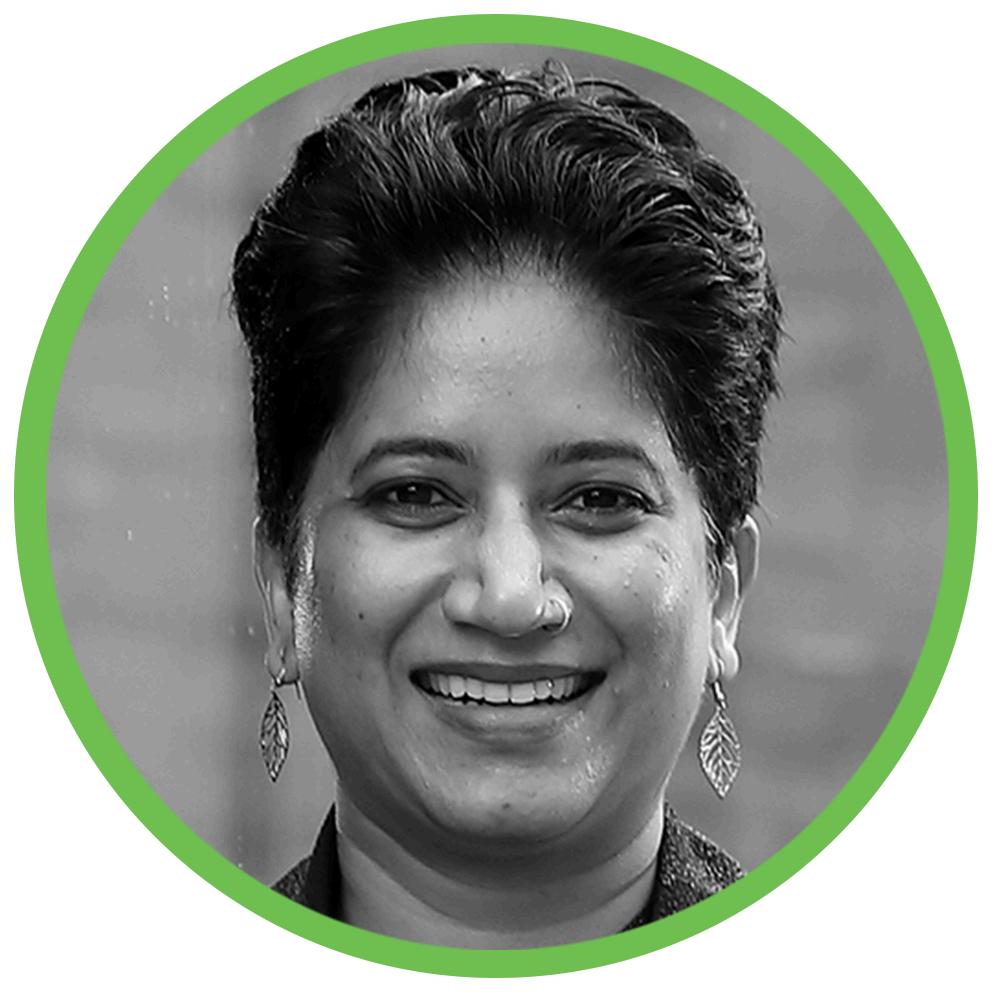
Lysa John
Atlantic Institute Executive Director
Our commitment to each other
The global community of Atlantic Fellows and staff is a purposeful, values-driven endeavor, which is about making an impact for the benefit of others. It is also a gift exchange, with benefits as well as obligations. As part of these obligations, we ask that members of this community (all of us) give expression to our values in the following ways:
● Show up with kindness and integrity as you connect with people who bring different perspectives and experiences; therefore, we ask that you:
○ Share your own perspectives with authenticity, grace and care.
○ Sometimes step back and listen to others to ensure there is space for perspectives/narratives/ stories other than your own.
○ Engage in courageous conversations (including disagreement) with kindness and empathy deconstruct but also focus on rebuilding and solutions.
○ Recognize your own privilege and power, and take action to challenge the status quo and lived realities.
○ Be mindful of others’ privacy, both in terms of what you share following an experience and on social media if you are photographing others.
● Be leaderly and respectful in the way that you honor the gift of the Atlantic community and, in particular:
○ Show up on time for flights, transfers, and programming. Be present and respectful of each other and the convenors.
○ Be generous with your time and, where possible, your resources in the spirit of reciprocity.
○ Be kind and gracious in the receipt of resources. It is a community of love, but the staff are not your personal travel agents or assistants!
○ Share the results of your experiences as an Atlantic Fellow inside and outside of this community
The Atlantic Fellows Hub
The Hub is the beating heart of our global community and one of the best ways to connect with others in the global Atlantic community. Make sure that you have logged into the Hub platform and please create or update your profile adding tags so people with similar interests can easily find you.The Hub is the place where you go to find out about all upcoming events hosted by the Atlantic Institute, our partners and other Atlantic Fellows. Here, you can register for the our webinars, skills workshops, and online and in-person convenings. There are also a wide range of opportunities and resources posted on the Hub. Watch the videos about navigating the Hub. If you have any technical problems logging on, you can get in touch with us at: support@atlanticfellows.org
About the Atlantic Institute
The Atlantic Institute provides Atlantic Fellows and staff with the networks, architecture and resources to connect, learn and act to address the underlying systemic causes of inequity – locally and globally Read about the Atlantic Institute team, our offerings and activities in the latest Global Atlantic Fellows Guide.
The Atlantic Institute is hosted by the Rhodes Trust, a Trust based in Oxford and known globally for its Rhodes Scholarships. The Atlantic Philanthropies purposefully chose Rhodes and Oxford as an opportunity to recognize and transform the legacy toward justice. Chris Oechsli, president and CEO of The Atlantic Philanthropies, explained why the Rhodes Trust was selected as a partner for the Atlantic Institute: "The difficult legacy of Cecil Rhodes, and the Rhodes Must Fall movement, that began in March 2015, presented huge challenges to the prospect of Atlantic’s partnering with the Trust for its equity-oriented legacy fellowship programs, and led to serious minded discussions within the Atlantic board. After serious deliberations, Atlantic chose Rhodes and Oxford purposefully. Partnering with Rhodes was seen as an opportunity for Atlantic and Atlantic Fellows to join the Rhodes Trust and Rhodes Scholars in recognizing and moving beyond this painful legacy through open, honest, thought-provoking and solutions-oriented discussions, as Chuck had done in seeking to bring an end to Northern Ireland’s Troubles.”
RESOURCES:
● ��Our Founding Story.
● ��“Rhodes Must Fall” by History Extra available on Apple Podcasts and Spotify
● ��“Cecil Rhodes and the Legacy of Colonialism” podcast.
The Network for Good
The Atlantic Institute is part “The Network for Good,” a powerful, globally impactful alliance with the Rhodes Trust and the Schmidt Science Fellows.The commitment of the Rhodes Trust to build a better world through partnership with programs like the Atlantic Institute and the Schmidt Science Fellows is embedded in the Rhodes Trust mission. Following the establishment of the Atlantic Institute in 2016 and Schmidt Science Fellows in 2017—supported by generous gifts from The Atlantic Philanthropies and Eric and Wendy Schmidt the Trust adopted a unified mission statement for both the core Rhodes Scholarship and its partners. Since 2019, the explicit call is to build a better world through global fellowship programmes that develop and connect compassionate, innovative, and public-spirited people.
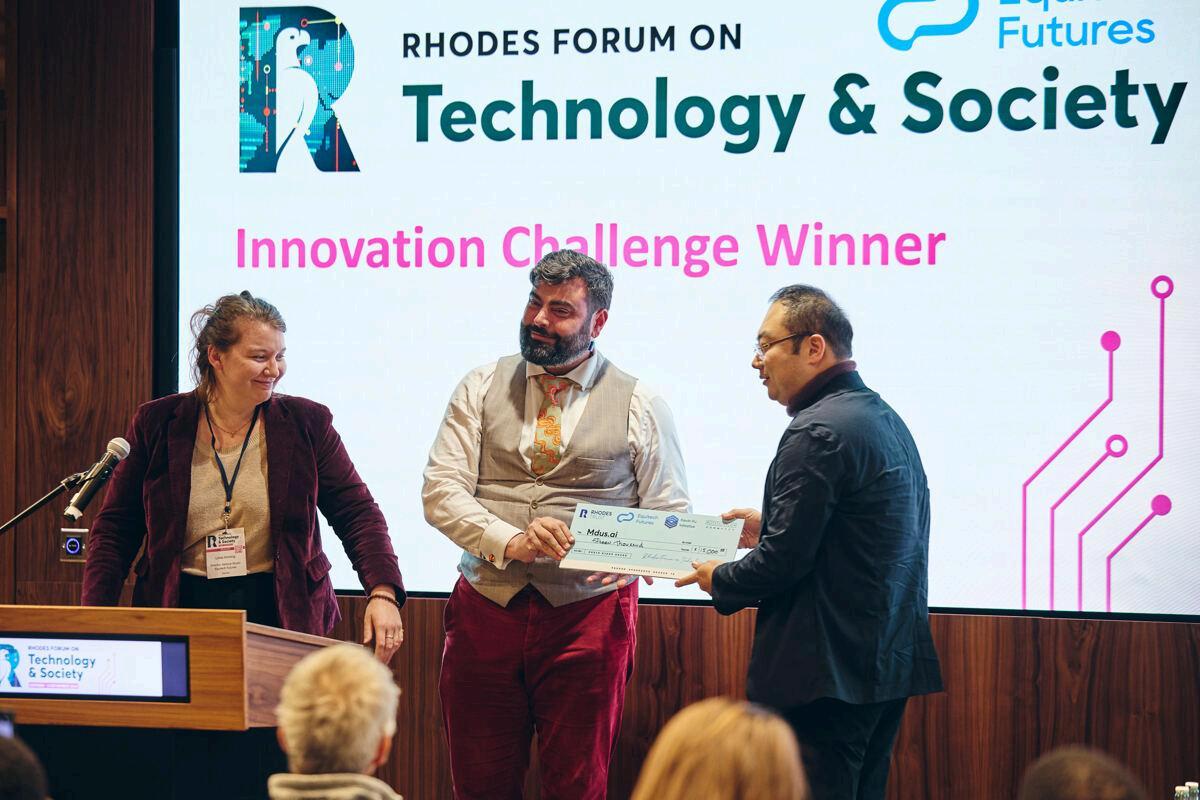
The alliance formed by Rhodes Trust, Atlantic Institute, and Schmidt Science Fellows embodies intentional synergies rooted in a common mission and values. The Rhodes Trust’s partnerships with the Atlantic Institute and Schmidt Science Fellows can increase the value of scholar and fellow learning experiences. This network enables Fellows to combine their voices and amplify their impact. Fellows have organically shared stages at events, like the Global Dialogues on Care or Brain Innovations. They have also connected at gatherings organized by the Rhodes community, in scholar-led events. Most notably, Atlantic Fellow, Quasi Hammouri, won the Kevin Xu Challenge and Fellows and Scholars regularly appear on the same stage at the Rhodes-led Tech and Society Forum. To date, one Rhodes Scholar has also become an Atlantic Fellow
Quasi Hammouri and their team won the inaugural Kevin Xu Innovation Challenge in 2024.
An introduction to the U.K.
The United Kingdom is a state made up of the historic countries of England, Wales and Scotland, as well as Northern Ireland. It is known as the home of both modern parliamentary democracy and the Industrial Revolution. Like all nations, the U.K has been shaped by conflict, being both a conquered and conquering people and has cultural, economic and intellectual links across the world.
Please read www.english-heritage.org.uk/learn/story-of-england/ And go to www.history.ac.uk, for a wide range of topics related to the U.K.
The British Empire began in the late 1500s under Queen Elizabeth I. By 1913, the empire had grown to rule over 400 million people, making it the largest empire in history The British government and society benefited economically from the empire and the people colonized by the British had British laws and customs imposed upon them, lost their ability to govern themselves and were, in many cases, violently oppressed. The ongoing impact of colonialism reverberates across the world.
Two world wars and the end of the empire diminished its role in the 20th century. The last decade has been marked by growing instability and polarization. A public referendum in 2016 led to Brexit, a political process by which the U.K. left the European Union and sharply divided the country. Brexit has raised questions about whether its standing in the world has been damaged but the U.K. still has economic, political and cultural influence globally. As in many countries, inequity, immigration and nationalism are all live issues. Reform, a newly formed right wing populist political party in the U.K., now poses an electoral threat to the main parties.
OXFORD UNIVERSITY, RHODES AND EMPIRE
The University of Oxford was central to the story of empire and conquest, benefiting from the exploitation of natural resources and people (many of whom were slaves). The University is currently bringing together a wide range of initiatives to better understand this history and repair historical and current injustices. Find out more the University of Oxford website.
Central to this story has been that of the Rhodes Trust, which hosts the Atlantic Institute. The imperialist founder of the Rhodes Trust, Cecil Rhodes, had a vision of a global society that centered around the British Empire. Racism, patriarchy and other forms of exclusion has been a part of the history of the Rhodes Trust. But today, the Trust’s strategic focus of diversifying the Rhodes Scholarship and the generosity of many donors means that the Rhodes Scholarships have become far more global and equitable. For example, the Trust has increased the number of fully endowed Rhodes Scholarships for students from Africa from 17 to 32 per year, resulting in a cohort of up to 100 African Rhodes Scholars in Residence at any one time.
The Trust is also raising funds to endow more Scholarships across the Global South, including Asia, the Middle East and Latin America, working toward a goal of having
125 Rhodes Scholarships per year Over the last two years, the listed 1929 Rhodes House has been transformed into a 21st-century space for Rhodes Scholars, Atlantic Fellows and scholars and fellows from other partnership programs.
The Trust is also seeking not only to diversify its intake but also to enhance the experience for Indigenous scholars, LGBTQI scholars, scholars with disabilities and undocumented scholars by strengthening their mechanisms for academic, financial, and personal and career support Furthermore, the Atlantic Institute’s relationship with the Trust as well as with other partners, including the Schmidt Science Fellowship, Rise and the Mandela-Rhodes Scholarship, seeks to enhance leadership and equity for those at various life stages and outside of the U.K. Learn more: www.rhodeshouse.ox.ac.uk/impact-legacy/legacy-equity-inclusion/.
The Rhodes Trust’s dedication to those “who suffered and laboured”
Rhodes Trustees, Rhodes Scholars, staff and guests gathered in the Rhodes House gardens on June 20, 2025, to mark the dedication of a new parapet carving in |xam, a sleeping southern African language. Professor Elleke Boehmer, Rhodes Trustee, Rhodes Scholar, and an Atlantic Institute Governing Board member, was one of the key speakers at the dedication ceremony. The new carving translates as: "Remembering and honouring in our work those who suffered and laboured to generate this wealth." Professor Boehmer shared that she had travelled to the Kalahari to consult with community leaders who are speakers of the related language N|uu about the use of |xam. Learn more.
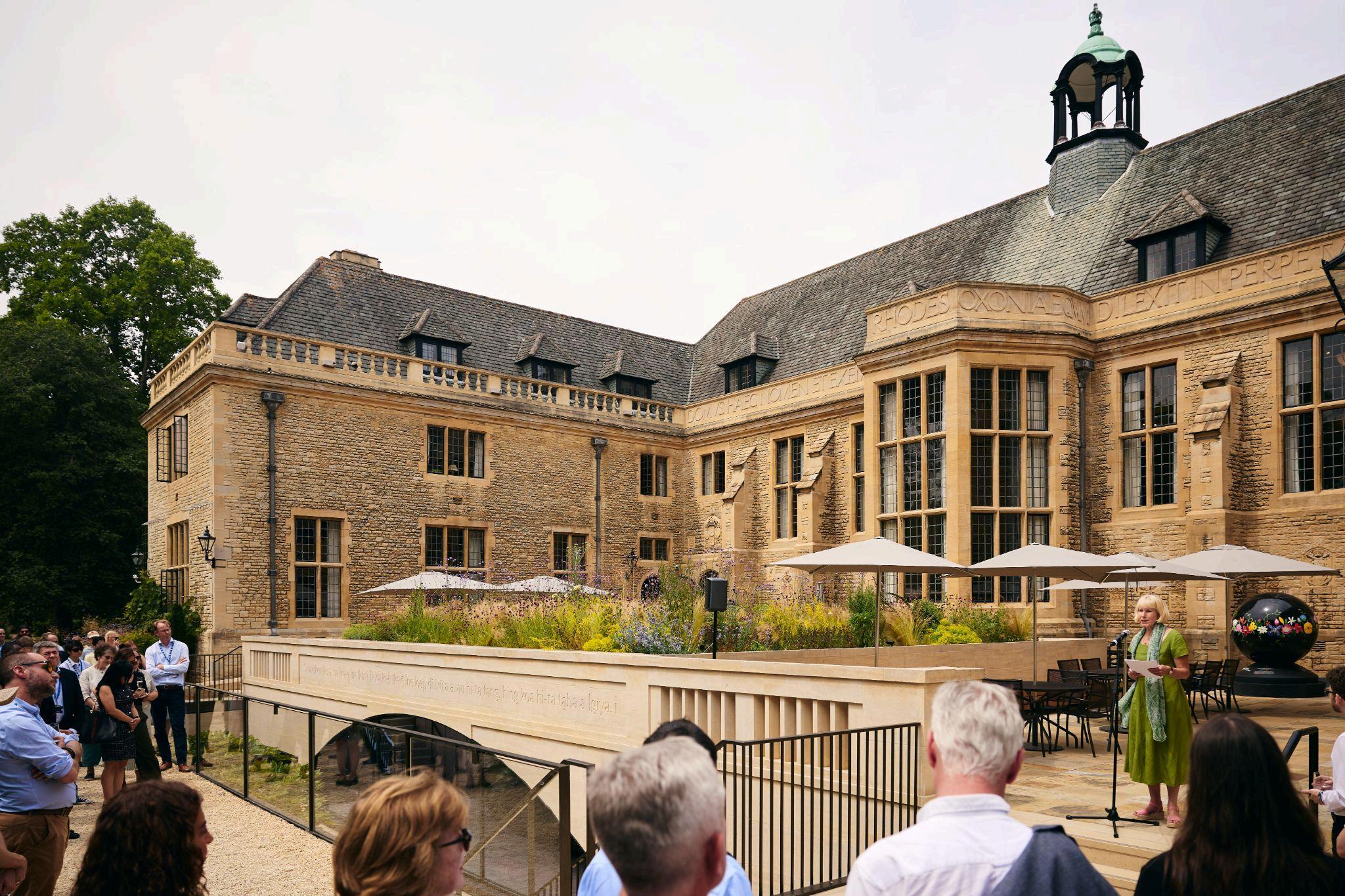
Professor Elleke Boehmer at the dedication ceremony by the parapet at Rhodes House
Oxford in context
The city of Oxford is home to 160,000 people from all walks of life with significant diversity. International students make up 46% of the University’s total student bodyaround 12,075 students - from more than 160 countries and territories. But for many, the city of Oxford is starkly unequal. Oxford was highlighted as the second least affordable city in the U.K. to buy a home outside of London in 2021 and is still in the top 10 least affordable places to live in the U.K. in 2025, according to some surveys. While all in the UK are affected by the current rise in prices, the cost of living crisis has the most substantial effect on people on a low income. A recent report by the National Institute of Economic and Social Research found that while some people in the U.K. enjoy a standard of living comparable to the most prosperous regions of Europe, the poorest are poorer than the poorest parts of countries like Slovenia and Malta. It says the U.K. has some of the least generous welfare across the OECD (Organisation for Economic Co-operation and Development)
At this convening, we will consider the past and recent histories of Oxford and the U.K., places that have contributed to global inequities of many kinds, and look at why various forms of inequity remain entrenched. We will be joined by Aleena Din, a historian of gender, class and race in modern Britain, who has been working with an Oxford University “Community History” project. It aims to re-assess social histories of modern Britain by capturing lesser-known experiences of migration, family, community, activism and labor We will also explore ideas of power in context, widening the aperture of history to view different forms of power social, cultural, political and economic, and see how narratives continue to be reframed and rewritten.
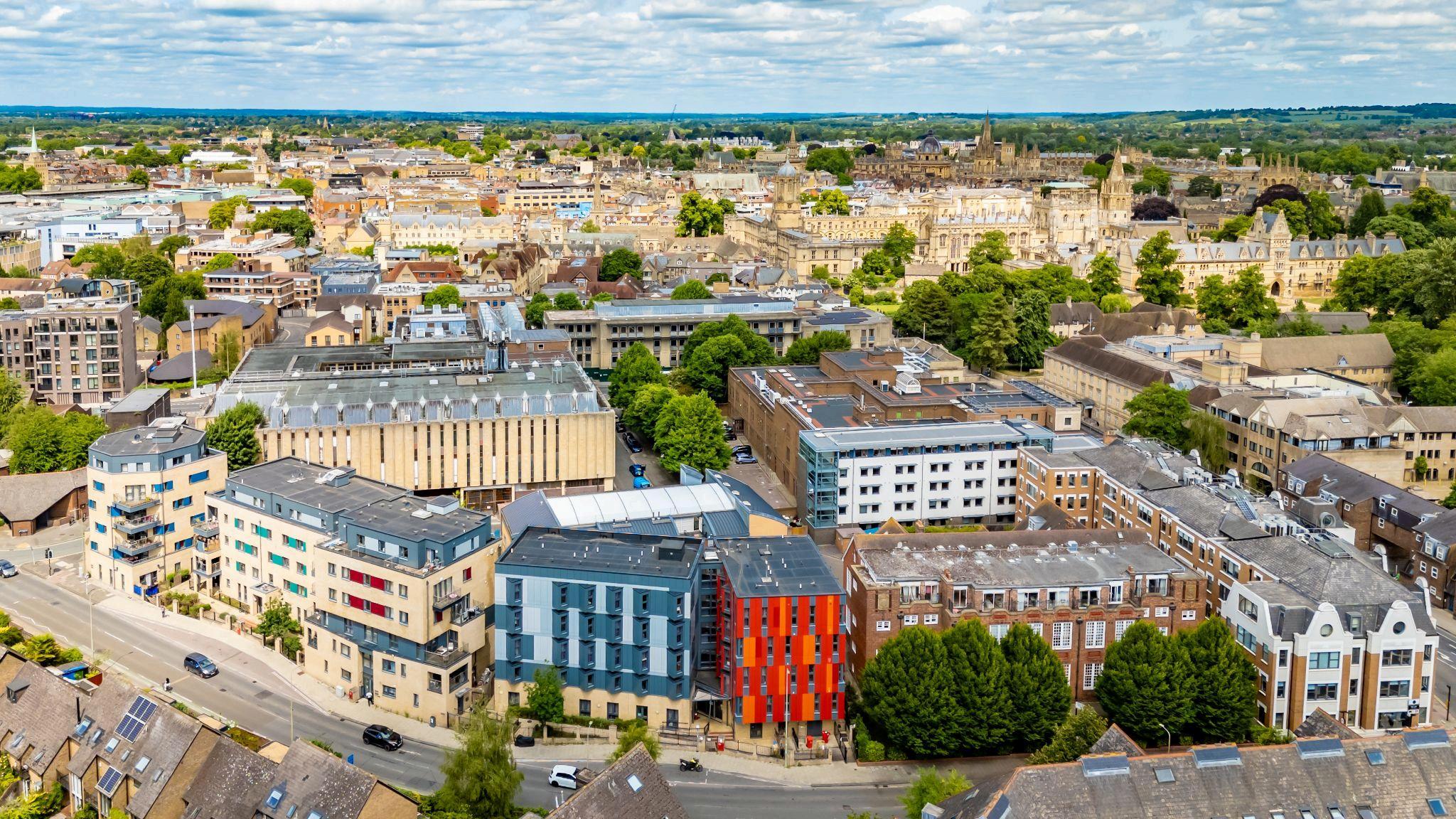
Oxford is a not just a city of spires It has a diverse population and building styles
The Program
THE ATLANTIC FELLOWS GLOBAL WELCOME
Every year, the Atlantic Institute hosts a welcome ceremony for the newest cohorts of Fellows who have completed their Atlantic Fellows program. The ceremony formally marks your entry into the global Atlantic Fellows community.
During your time in Oxford you will:
● Learn more about the Atlantic Institute, its theory of change and its connection with the Atlantic Fellows programs.
● Connect with Atlantic Fellows from diverse sectors, geographies and disciplines for a cross-pollination of ideas and collaboration.
● Reflect on leadership through real-world case studies, research and insights from the Atlantic community.
● Explore the rich history and culture of Oxford and deepen your understanding of personal and collective narratives.
● Critically examine emerging technologies and Extended Realities (XR) in our state-of-the-art XR Lab at Rhodes House, exploring the opportunities and challenges of such innovative technologies.
● Engage with Oxford’s academic networks and local community groups.
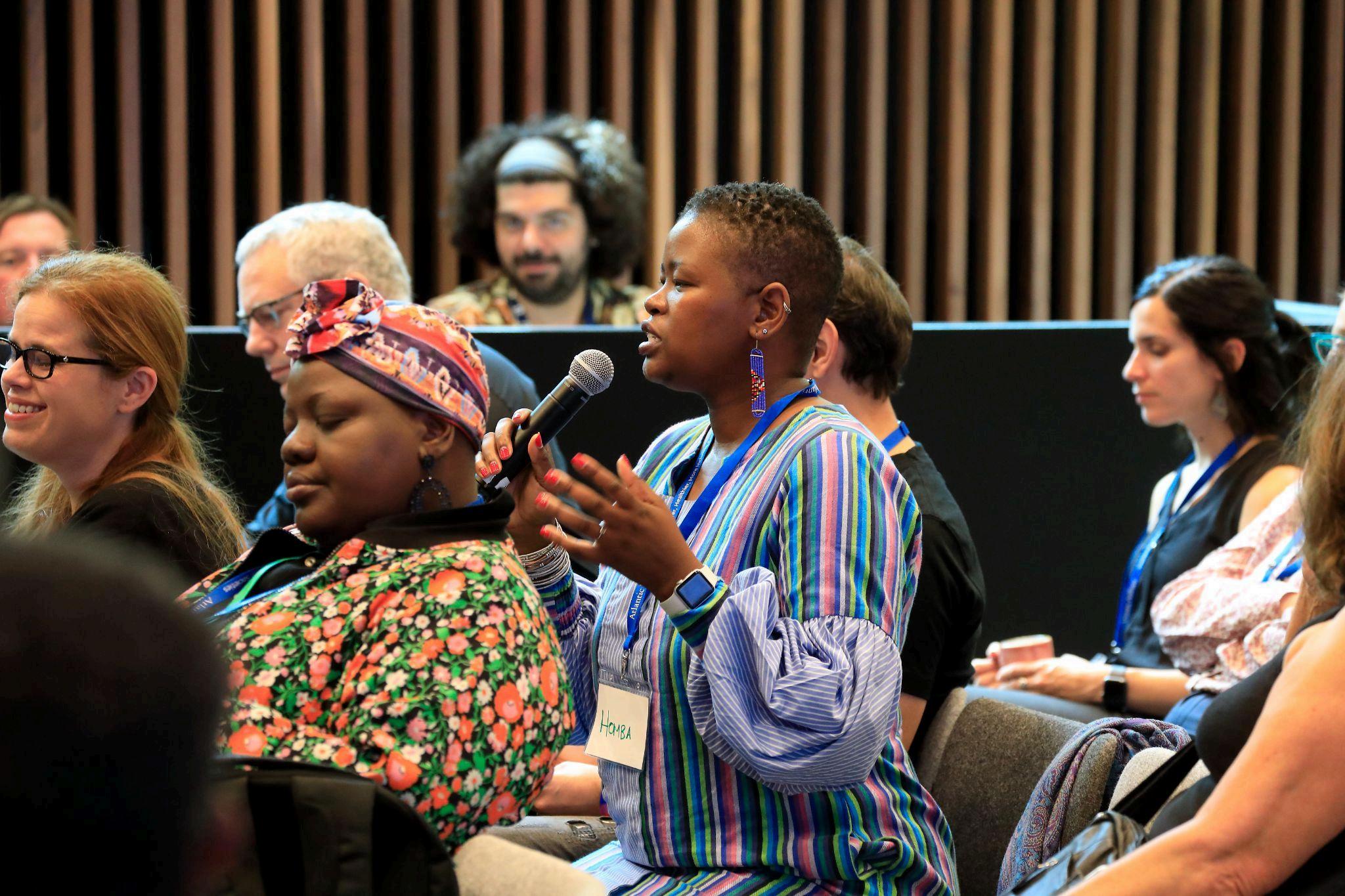
DAY I: THURSDAY, JULY 10 - WELCOME AND CONNECTION TO PLACE
TIME SESSION VENUE
FACILITATORS/ SPEAKERS
09:30-10:45 Connecting to our longer histories Pitt Rivers Museum Faye Belsey and Bryony Smerdon with AFSE Fellows
11:00-12:15 Welcome to your home away from home Kopanong|Atlantic Fellows Residence, with a walk to Rhodes House Atlantic Institute team
12:15-12:45 Oxford’s Lesser-told Histories
Rhodes House Glass Pavilion Aleena Din
12:45-13:30 Travel to Flo’s Cafe in East Oxford for a picnic lunch and dialogue
13:30-14:30 Discussion over lunch: Understanding Maternal Health Inequities in Oxford
Understanding Oxford as a place beyond the university, a home for many and where diverse people from different walks of life belong.
Flo’s Cafe, Florence Park, East Oxford: home to community and outreach efforts including food bank, nursery and preand post- maternal care services for the Black and minoritized community members.
14:30-15:30 Return to Rhodes House and debrief Flo’s
Melissa LatchmanCommunities Manager
15:30-17:00 Induction to the global Atlantic community: Identity, Purpose, Voice and Approach
Rhodes House Glass Pavillion Lysa John and Atlantic Institute team, Rhodes Trustees/Scholars
17:30-21:00 Walking Tour and Food, Music and Culture in Oxford with artist Rawz. Meeting place: The Christian Life Centre (at The Old Bingo Hall, 300 Cowley Rd., OX4 2AF. We meet at 17:30 sharp. Dinner will follow at the restaurant, Spiced Roots, at 19:00.
DAY 2: FRIDAY, JULY 11 - CONFRONTING LEGACIES
TIME SESSION VENUE
FACILITATORS/ SPEAKERS
10:00-10:30 Check-in and Reflections Rhodes House Glass Pavillion All
10:30-12:00 Pechakucha presentations in which Fellows share their work or big ideas. All
12:00-13:15 Climate Justice and Just Transitions Oxford Net Zero
Alexis McGivern and Matilda Becker
13:15-14:00 Lunch
14:00-15:00 Confronting legacies and narratives RH Glass Pavillion Tanya Charles
15:00-15:10 Body break
15:15-16:00
16:00-16:45 The power and potential of Extended Realities in Justice Spaces.
Panel discussion followed by a demo.
16:45-17:00 Closing
18:30 Self-organized dinner
RH Glass Pavillion Fellows Deloris Wilson, Dylan Valley and Adekemi Adeniyan on GoBe Robots (or Zoom) and Alice Wroe moderating, Book of Genocides
DAY 3: SATURDAY, JULY 12 - DOING THE WORK IN A WORLD OF CONTRADICTIONS TIME SESSION
10:00-10:45 Check-in /Reflections Voco meeting room All
10:45-12:30 The Oxford Ecosystem: Place, Positionality and Power Rhaea Russell-Cartwright, Ruth Mhlanga and David Kerr
12:30-14:00 Lunch
14:00-16:00 Global Leadership for More Equitable Futures Patronella Nqaba and Tanya Charles
16:30-17:00 Group wrap-up and close
18:30-21:00 Closing dinner - Voco Spires Hotel
Pre-reading materials
● Ayubi, A & Walrath, D. 2020: A Review: Remembering Through Narratives
● Enterprise Brief: Making Corporate Climate Transitions Work: Business Guidance for Implementing Just and Equitable Transition Plans
Championing futures in XR
We envision a future where the landscape of social justice is revolutionized by Extended Reality (XR). XR is an umbrella term encapsulating Augmented Reality (AR), Virtual Reality (VR), Mixed Reality (MR) and everything in between. Throughout history, champions of equity have leveraged traditional technologies to uplift communities and ignite ideas. Now, as we stride into a new era, we believe that the quest for equity will be invigorated and celebrated through the power of emerging technologies. In a world increasingly dependent on technology, while digital space represents great potential, it simultaneously poses a great threat of deepening existing inequities. It is vital that the future of XR is steered by those dedicated to creating equitable futures. Therefore, our global community must not only embrace emerging technologies but also become leaders in this space, equipped with the networks, frameworks and resources necessary to co-create, critique and champion our futures in XR.
THE XR LAB AT RHODES HOUSE AND OTHER SPACES WORLDWIDE
The Atlantic Institute has established an intentional space in the “reimagined” Rhodes House, in Oxford, for testing, creating and expanding the boundaries of XR technology. The XR Lab is a place to gather and explore new technology, borrow equipment and be supported to learn how XR can strengthen your equity work.
You can use spatialized platforms to connect virtually and find out how, as a global community, we can meaningfully be together when we are physically apart. The Lab will be connected to other spaces across the world that will hold technology and equipment. Like the technology itself, our engagement in this area is emerging, so please reach out to the XR lead, Alice Wroe and Richard Smith with any ideas, questions or proposals.
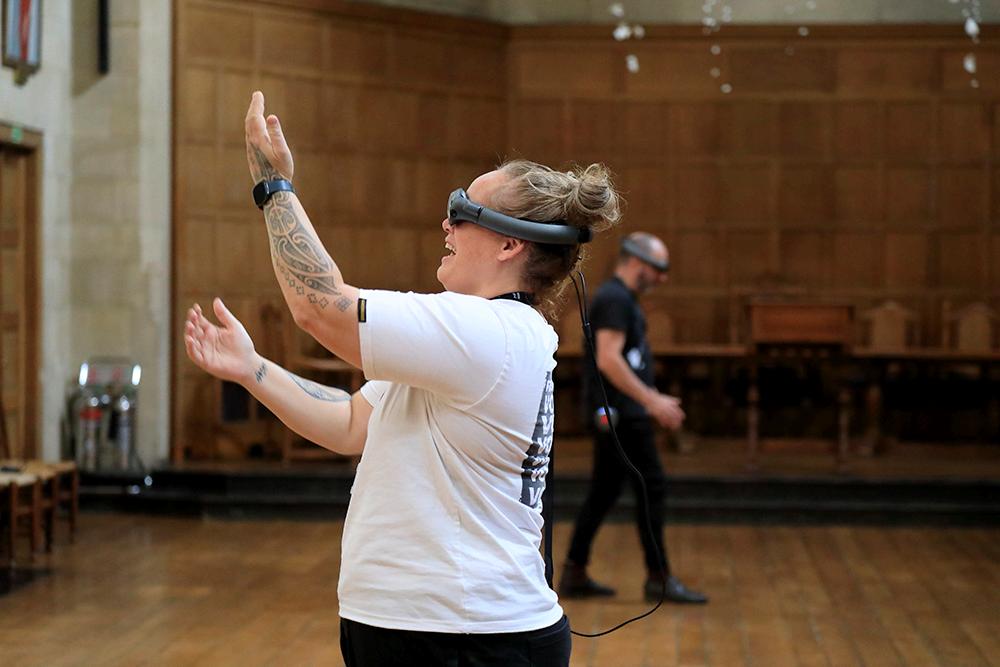
Logistics
FLIGHTS
By now all your flights should have been booked. For Atlantic Fellows for Social Equity, airport transfers will be arranged to and from the airport (see the details below). For Atlantic Fellows for Racial Equity, the Atlantic Institute will only arrange for airport transfers for your departure from the U.K.
You may need to prove that you have a valid reason for entering the U.K. to an immigration officer at border control. You may also be requested by airline staff at check-in to provide additional documentation to support your case, so please keep a printed copy of:
● Your return airline ticket.
● Proof of accommodation.
● Bank statements showing you have sufficient funds for the duration of the stay. Please contact David Mallinson at d.mallinson@atlanticfellows.org as soon as possible if this is a concern and we will arrange additional paperwork for you. All details will be kept confidential.
● Your passport must be valid for at least six months before the date of return and have two blank pages. (Three blank pages are needed for visas from South Africa.)
● Any additional information that may be requested when applying.
GROUND TRANSPORT
For those arriving by air, transport from the airport to your accommodation will be arranged by Bojan Executive Cars. Transfer details will be sent to you separately via Whatsapp. The driver will be waiting for you at airport arrivals holding a sign with “Atlantic Fellows or your name”
If you are unable to find the driver or if you experience any delays, please contact David Mallinson at d.mallinson@atlanticfellows.org, or the driver directly on the contact details provided.
ACCOMMODATION, MEALS AND AMENITIES
You will be staying at Voco Spires Hotel as confirmed in the letter you should have received from us. Transport to and from the accommodation is provided during program sessions. If you miss the arranged coach you will have to make your own way to the venues at your own expense.
COSTS WE COVER
During your time here, the Atlantic Institute will cover the costs of:
● Breakfast, lunch and dinner each day as well as drinks during breaks.
● Accommodation from the date of your arrival (from July 9 or July 10 up to the date of your departure on July 13 as confirmed by us with you.
COSTS WE DO NOT COVER
● Room service: For those of you staying in hotels, while you are welcome to order anything to your room, please settle the bills immediately. Due to the large number of guests staying in our group, the hotel will not allow you to put charges to the room.
● Laundry: There will be laundry facilities available to use at your own cost. Detailed instructions and costs will be communicated to you.
● As all meals are provided, any meals taken outside of the established locations and venues is at your own cost. You will not be reimbursed for those meals.
● While you are welcome to extend your stay outside of the confirmed dates, you will need to cover any related costs.
A WELCOME BAG
You will receive a gift bag from the Atlantic Institute on your arrival containing:
● A water bottle
● A notebook and pen
● A tote bag
FINANCES AND RESOURCES
Each Atlantic Fellow for Social Equity will receive £125 as a contribution toward their travel expenses This will include £50 for travel insurance to cover your costs such as losing your bags or experiencing other unexpected events on your trip. The remainder is intended as a contribution toward the cost of your transport to the airport on your return and any self-organized meals. Separate arrangements have been made for the Atlantic Fellows for Racial Equity.
Photography and Videography
Photography and filming will be taking place at various points during the convening. As part of completing the travel form, you indicated your preference to be included in this. If your preference has changed, please email Fionnuala at f.sweeney@atlanticfellows.org
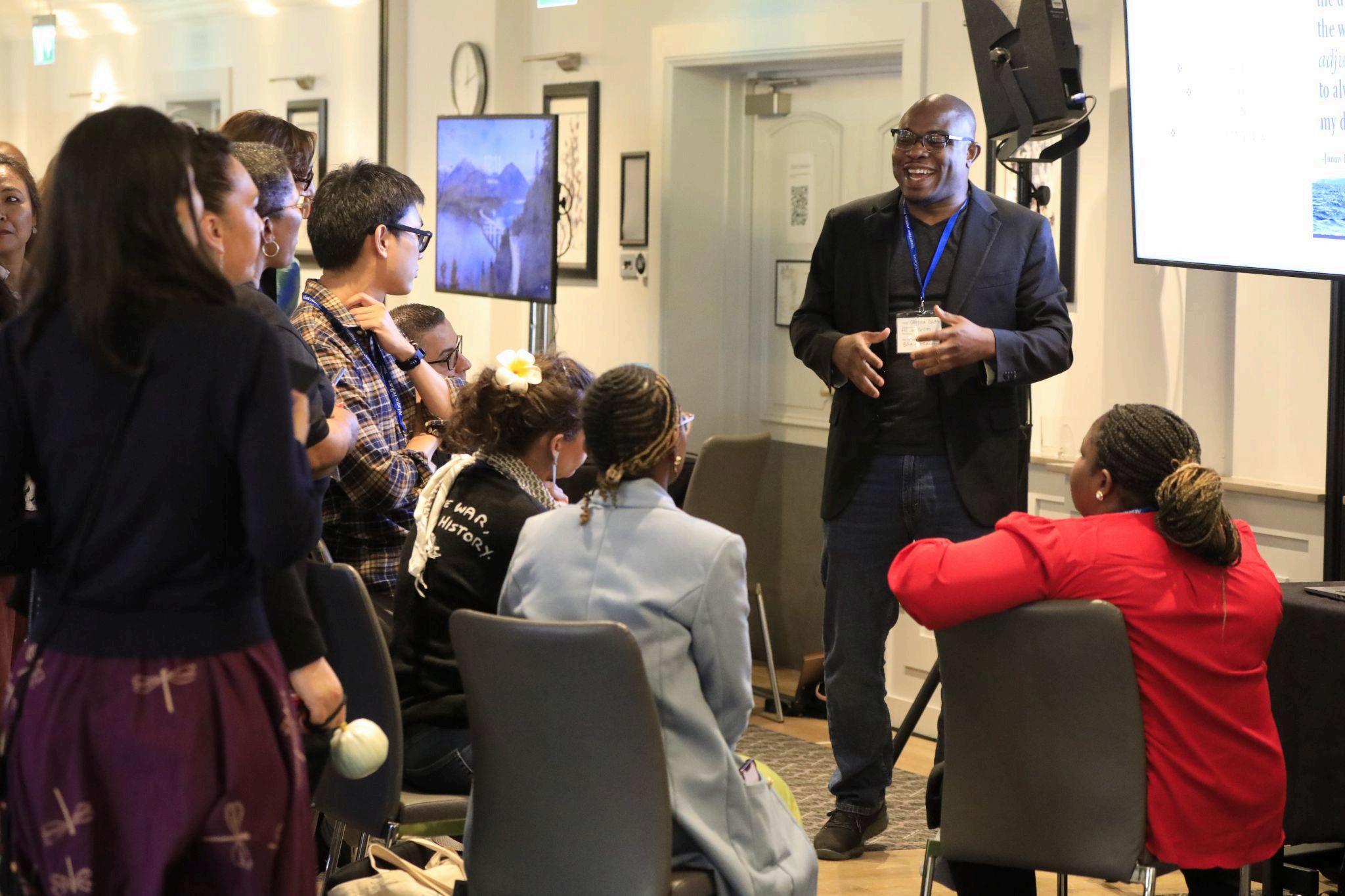
Outputs
As part of your participation in this convening, you may be asked to share your experience with both the global Atlantic community and the wider public by writing an article or blog, recording an audio blog, or taking photos or a video selfie. This can be done either individually or collectively with participating Fellows from other programs You may be contacted by a member of the Atlantic Institute team during the convening about whether you would like to contribute in this way or, if you can volunteer by contacting one of the Atlantic Institute team onsite.
Self-Care
We expect all attendees to be fully present at the convening. However, we understand that in certain instances this may not be possible due to sickness, mental health issues or other conditions. Please let one of the Institute staff know if you will not be attending sessions.
Staying in touch
JOINING A WHATSAPP GROUP FOR THE GLOBAL CONVENING
A WhatsApp Group has been set up for the convening where we will share any urgent updates and information.
WhatsApp can be downloaded on an Android, iPhone, MacWindows PC and the Windows Phone. Free WiFi is available at the airport once you have landed and your accommodation has stable WiFi connections. The WhatsApp group will allow us to stay in touch in the run-up to the convening and afterward, should you want to.
Your first port of call is David Mallinson, the Atlantic Institute events coordinator, on WhatsApp:+44 7342 703 978 or email at: d.mallinson@atlanticfellows.org
CONTACT NUMBERS FOR EMERGENCIES
Oxford is generally a safe city and you should feel relaxed here, for the most part. However, be careful about which areas you go into and watch your belongings. If you have any concerns, get in touch with the Atlantic Institute team as they will try to assist in the best way possible.
The direct number for emergency services in the U.K. is 999.
Emergency Numbers in Oxford
Thames Valley Police Station, St. Aldates, Oxford, OX1 1SZ
Tel: +44 1865 841148
John Radcliffe Hospital, Headley Way, Headington, Oxford OX3 9DU
Tel:+44 300 304 7777
If you require a SIM card for your mobile phone, we recommend that you buy one at airport arrivals. If you would like to purchase a SIM card outside of the airport, you will find them at most high street shops or supermarkets. Mobile phone networks offer a pay-as-you-go option for airtime and data (Three, Lebara, Giffgaffs are some options available). This means that you should be able to top up your cell service by purchasing vouchers at various stores during your stay. For some SIM cards, you will need to top up the SIM card with minimum value credit (around £5) before activating it to obtain the U.K. mobile number.
E-SIMs are also available for many recent phones. They are embedded SIM cards and a useful way of keeping both your current SIM and a travel SIM. Providers include HolaFly, Orange and Vodafone, among others.
Provision for emergencies
TRAVEL INSURANCE
Anyone travelling to the convening will be covered by the Rhodes Trust travel insurance policy provided by AIG Insurance. Note, however, that this policy cannot be used to make small claims for flight or luggage delays or costs associated with immediate minor medical treatment. Therefore, you are advised to obtain a suitable single-trip travel insurance policy to cover you for the duration of your trip to Oxford. You should ensure that you have adequate travel insurance before you travel. This may be provided by your company, bank, or university, so check with them in the first instance. Otherwise, you will need to purchase your own travel insurance policy. Once your flight is confirmed, please purchase your travel insurance as proof of travel insurance is a requirement for your United Kingdom visa application and for travel in the country
The Atlantic Institute is supporting you with up to £50 for these costs. This contribution is made before the convening for Atlantic Fellows for Social Equity
What to pack
THE WEATHER
The residency will be taking place in one of the warmest months in Oxford. July temperatures average a daily high of 20 degrees Celsius (67 degrees Fahrenheit) and a low of 11 °C (52 °F). Please pack sunscreen to prevent burning.
CLOTHING FOR THE TRIP
The convening is an informal space, so we encourage you to dress in whatever you feel is comfortable. There will be movement sessions as part of the programming, so please wear clothing that you can move around in with ease. We also encourage you to wear comfortable shoes if you want to explore Oxford the best way, on foot.
OTHER TIPS FOR YOUR STAY IN OXFORD
● The food is generally of good quality, but use the usual caution when making your choices about eateries.
● You can use both cash/cards for payments. We recommend using debit/credit cards. (Please let your bank know that you will be in the U.K. to avoid problems accessing your accounts.)
ADDITIONAL INFORMATION
There is free WiFi at Rhodes House and at the accommodation. Therefore, communication links to home via Skype, FaceTime and WhatsApp should allow anyone with more challenging mobile phone networks/providers to stay connected. We will not be providing additional SIM cards or mobile options. Please bring plug adaptors so you can charge up your phones using the three-pin plug for the U.K.
MONEY
Major banks have branches as well as automated teller machines (ATMs) which are linked to all major international networks for drawing currency Visa and Mastercard are generally accepted across the country but please bear in mind that American Express cards are not always accepted. Additional international fees may be incurred when you use debit and credit cards.
For Fellows extending their stay, banks or ATMs are widely available in most shopping centers in the U.K.
A checklist
CHECK ITEM
PAPER WORK
Passport with validity for the entire stay, which is mandatory for entry to the United Kingdom.
A print copy of vaccine certificates (if applicable).
A copy of your visa.
A print copy of hotel confirmations (including additional copies for those changing hotels).
A print copy of your flights.
A print copy of the invitation letter from the Atlantic Institute.
Cash for an emergency.
Your credit card.
CLOTHING AND MEDICATIONS
Comfortable clothes and shoes.
Hand sanitizer additional supplies in case you have special skin conditions.
Shower gel/bath soap and other amenities
Pain or flu and cold medications as we are not able to provide these.
Prescription medications.
OTHER ITEMS
Computer/mobile chargers.
A guide to Oxford
Some of our favorite places
SHOPPING AND RESTAURANTS
Westgate Mall on Queen St , Oxford, OX1 1TR
Westgate is home to global brands, eclectic restaurants and cafes, leisure, and sophisticated rooftop bars and dining.
MARKETS
The Covered Market: Market Street is a historic market with permanent stalls and shops in a large covered structure in central Oxford.
Gloucester Green outdoor street market: Stalls with street food from around the world, crafts and pre-loved clothing, among other things. Open from Wednesday to Saturday.
RESTAURANTS
There are plenty of amazing restaurants in Oxford city center. Make reservations online or by calling ahead as restaurants in Oxford can get fully booked in peak seasons. In the U.K., most people dine at restaurants from 7 p.m. to 10 p.m. Check the website/or Google them before going.
Arbequina (Spanish Tapas Cuisine): 72-74 Cowley Rd., Oxford |+44 1865 792777 |££| Michelin-rated restaurant offering tasty, filling tapas dishes. One of Shanjitha’s favorite restaurants in Oxford.
Antep Kitchen (Turkish/Middle Eastern Cuisine): 228-230 Cowley Rd., Oxford | +44 1865 247555|££| A family-run restaurant that offers hot and cold mezze. Antep Kitchen is always busy, so book ahead.
Edamamé (Japanese Cuisine): 15 Holywell St., Oxford, OX1 3SA | +44 1865 246916|££| A little gem serving authentic Japanese food (rice bowls, ramen, and other dishes) in a casual and friendly setting right outside of New College. Lines can be long, so consider calling for collection. Keep your eyes peeled for their Thursday Sushi Nights! Opening hours: Wed: 11:30 a.m. to 2:30 p.m., Thurs, Fri, Sat: 11:30 a.m. to 2:30 p.m. & 5 to 8:30 p.m., Sun: 12-3:30 p.m.
Kazbar (Spanish and Moroccan Cuisine): 25-27 Cowley Rd., Oxford | +44 1865 202920|££| Tapas dishes. Restaurant decor is North African lanterns, kilims and mosaic tables.
Za’atar Bake (Middle Eastern and Mediterranean Cuisine): 166 Cowley Rd., Oxford | +44 1865 466666 |££| Delicious Manakeesh (baked flatbread), Maqloubah, Arabic Quiche, Fatayer, Tagine, Baklava and more in a vibrant, colorful setting. Za’atar Bake is often busy, so book ahead.
BARS AND PUBS
Oxford has a vibrant nightlife. Depending on your interests and the type of experience you wish you have, here are some options:
The Tap Social Movement: The Tap Social is a craft brewery and hospitality social enterprise that provides training and employment for people in prisons. They have two locations:
- The White House - 38 Abingdon Rd., OX1 4PD | A short walking distance from Norham Garden. It is usually open until 11 p.m. daily but closed on Mondays.
- The Taproom - Curtis Industrial Estate, 27, North Hinksey Lane, OX2 0LX (outside of Oxford city center) | You will need a taxi-ride to this location. Open from Thursday to Sunday.
Junkyard Golf Club: Castle St., Westgate Mall, OX1 1NU| For crazy golf and cocktails.
The Kings Arms: 40 Holywell St., OX1 3SP | +44 1865 242369 | One of the oldest pubs in Oxford, built in 1607 and still standing in its original position.
The Turf Tavern: 4-5 Bath Place, OX1 3SU | +44 1865 243235 | Another historic pub in central Oxford, with its foundations dating back to the 14th century.
ARTS AND CULTURE
Ashmolean Museum: Beaumont St., OX1 2PH | The Ashmolean is the University of Oxford’s museum of art and archaeology, founded in 1683.
Modern Art Oxford: 30 Pembroke St., OX1 1BP| Cutting-edge exhibitions of international modern and contemporary visual art, plus an upbeat cafe.
Oxford University Museum of Natural History: South Parks Rd., OX1 3PW Housed in a stunning example of neo-Gothic architecture, and among its most famous features are the Oxfordshire dinosaurs and remains of a dodo Very family-friendly
Pitt Rivers Museum: South Parks Road, OX1 3PW | A collection of anthropology and world archaeology (housed in the same building as the Museum of Natural History). Please note that a visit to the Museum evokes very different emotions and feeling with different people, depending on background and walks of life. For those who have heritage or roots in regions of the world that suffered the violence of the Empire, the Pitt Rivers Museum can be a very difficult and hurtful place. Undoing the coloniality is integral to the work the Museum does today. See more at https://www.prm.ox.ac.uk/committed-to-change
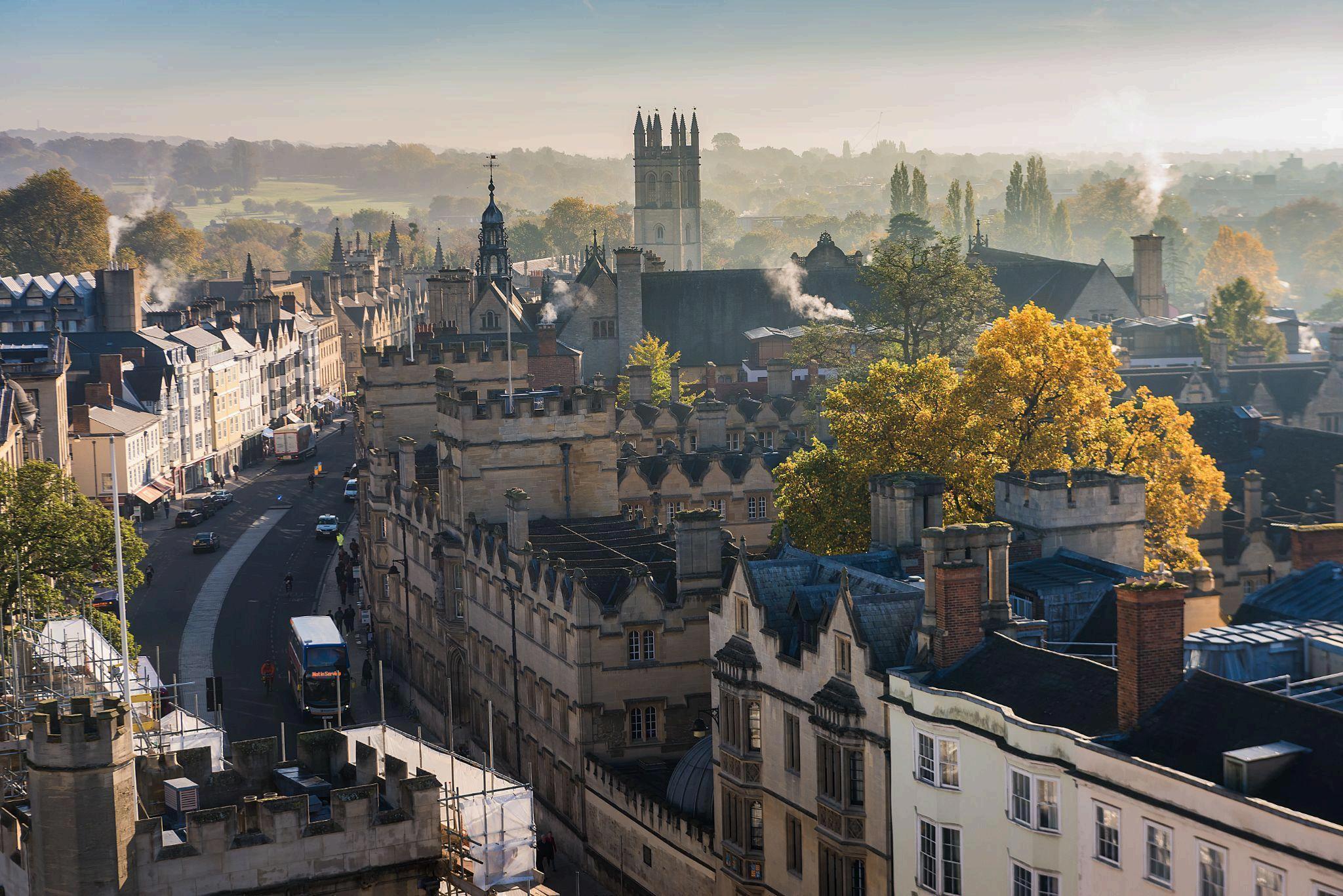
The High Street, Oxford, an iconic street generally regarded as the center of othe city
The Story Museum: 42 Pembroke St., OX1 1BP | A unique museum celebrating the human need for stories and narratives and the benefits they can bring. Very family-friendly.
THEATERS
New Theatre Oxford: 24-26 George St., OX1 2AG
Oxford Playhouse: 11-12 Beaumont St., OX1 2LW
NATURE AND EXCURSIONS
Riverside walks are a great way to see Oxford during the day but the paths are not lit at night so nighttime riverside walks are not recommended.
University Parks opens daily at 7.45 a.m and is a wonderful place for walking or running.
Port Meadow in north Oxford is one of the largest open spaces in the city. With the River Thames flowing through it, it is home to cattle, horses, and wildfowl. It is a great place to view the Oxford city skyline.
GETTING AROUND (OUTSIDE OUR OFFICIAL TOURS)
If you are arriving early or extending your stay, we recommend the following transport options:
Oxford is best explored on foot with plenty of walks through the ancient and historical city. We suggest an early morning stroll around the city when it is quiet and you can truly enjoy its beauty.
Taxis
Two of the main companies are 001 Taxis and Royal Cars. 001 Taxis: +44 1865 240000
Royal Cars: +44 1865 777333
In order to use your mobile to find a cab, please download the Royal Cars app or Free Now app. There may be a long wait during busy times such as lunch and evening meal times (particularly at the weekend).
The ride-hailing app, Uber, recently started operating in Oxford.
Bicycles are also a convenient way to get around the city They can be rented from Bainton Bikes.
GETTING TO LONDON
If in your spare time you would like to travel to London, you can book a train ticket in advance. It takes about an hour to get to London from Oxford. There are regular trains to London throughout the day (departing every 30 minutes). Book online at https://www.gwr.com/.
Social Media
Please share photos or messages about the convening ensuring first of all, of course, that everyone in the photo is happy to appear.
Follow @atlanticfellows on LinkedIn, Instagram, Facebook, X and Bluesky to stay up-to-date on the news and please reshare our posts. We also have an Atlantic Institute LinkedIn account.
Follow us on X
Follow us on Facebook
Follow us on Instagram
Follow our Atlantic Fellows LinkedIn account
Follow our Atlantic Institute LinkedIn account
Follow us on Bluesky
Convening participants
ATLANTIC FELLOWS
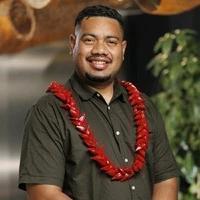
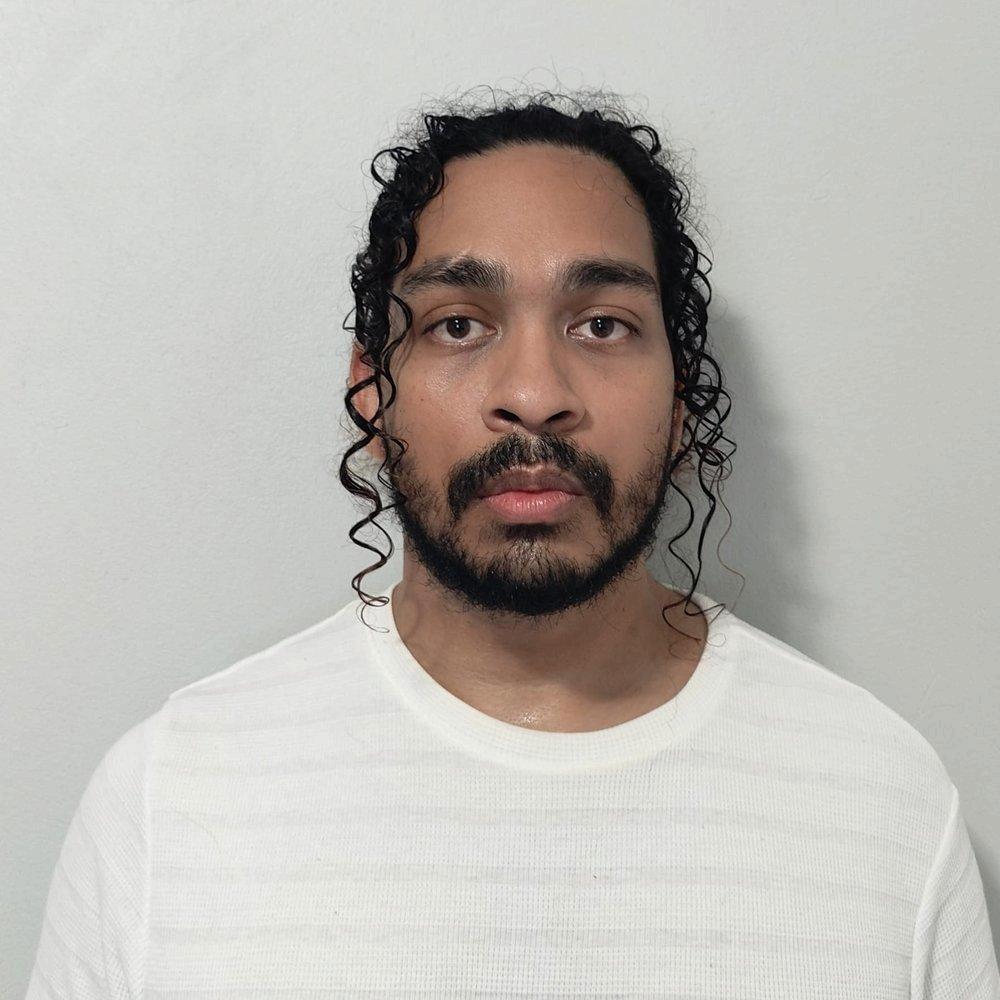
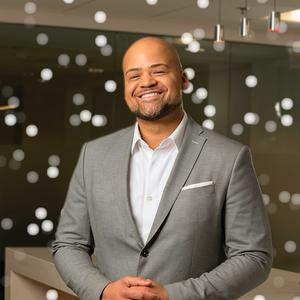
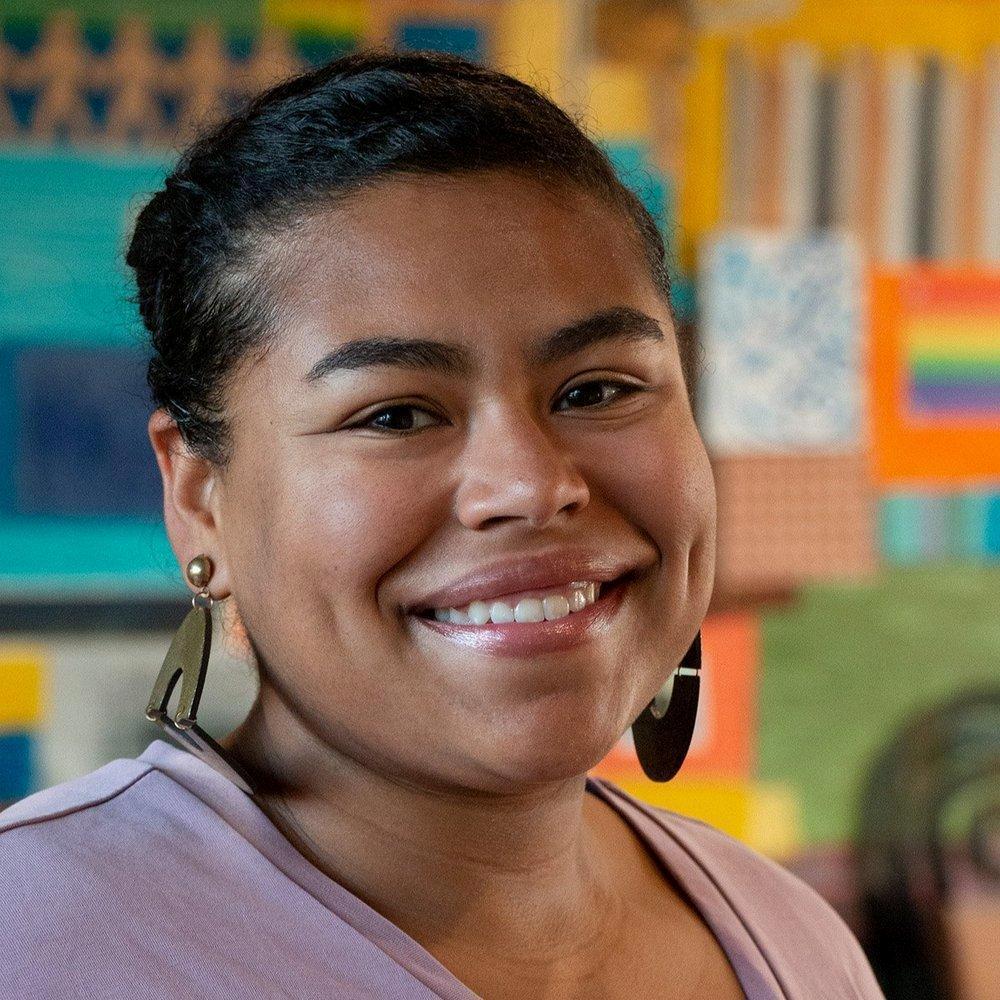
Mavae Ahio is an Atlantic Fellow for Social Equity He currently sits on the Pacific Peoples Advisory Panel for Auckland Council, advising the mayor, governing body and council organizations, to help improve outcomes for Pacific communities. At the Ministry of Education, he has worked as a Principal Adviser for the Deputy Secretary of Education and is now a senior business adviser for the Deputy Secretary of Education in Auckland. Mavae is a lay preacher of the United Church of Tonga, New Zealand, and is currently the youth leader of Tauafa’ahau.
Matthew Batson is an Atlantic Fellow for Racial Equity. He is the founder and director of Amethyst, an organization focused on revolutionizing mental health through decolonizing approaches, shifting the power of healing back to communities and empowering persons to reclaim their holistic self within a capitalist driven world that purports that a separation from our humanity is not only possible but necessary.
Will Cordery is an Atlantic Fellow for Racial Equity. He is a philanthropic adviser and social justice advocate focused on racial, economic and LGBTQ+ justice. He founded Freedom Futures, a philanthropic advisory firm.
Tamara Hill is an Atlantic Fellow for Racial Equity. Her work focuses on leveraging policy advocacy, direct services and coalition building to foster lasting community improvements in security and safety for Black and Brown people, with a vision of contributing to Black liberation.
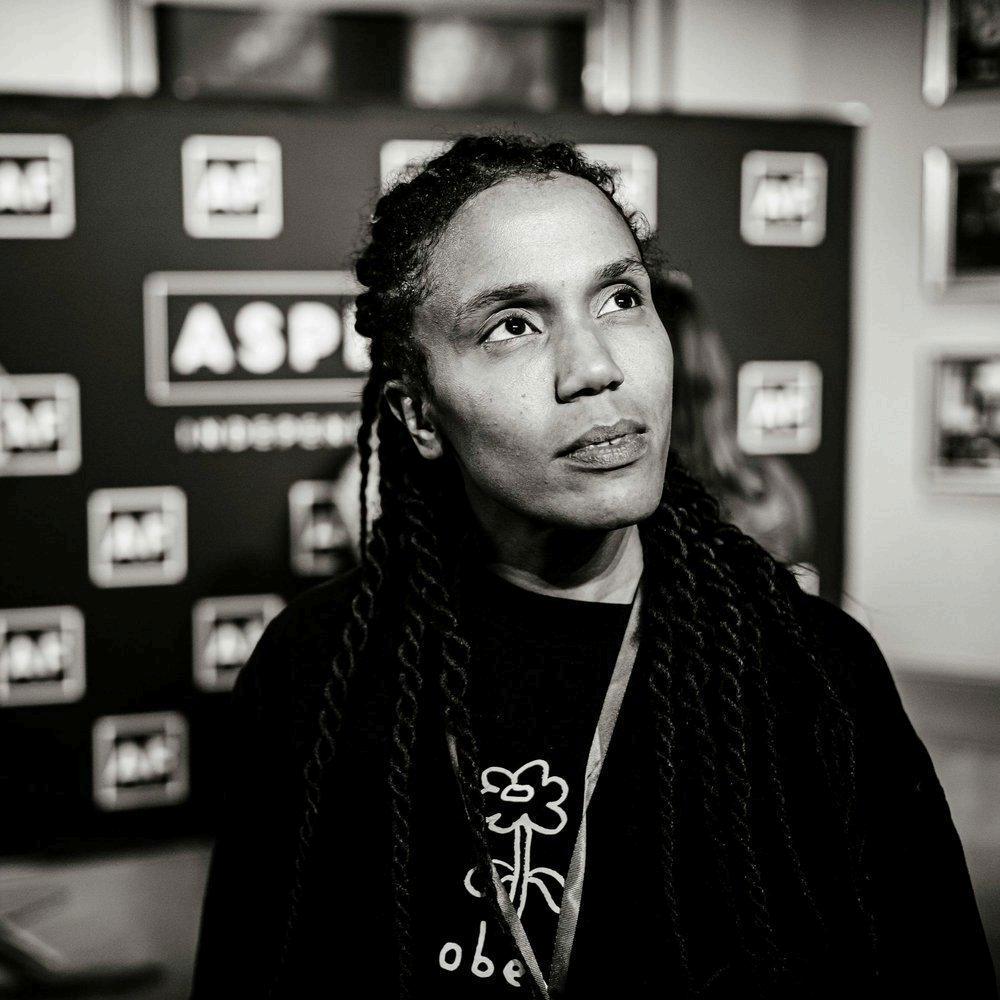
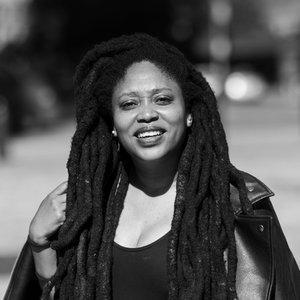
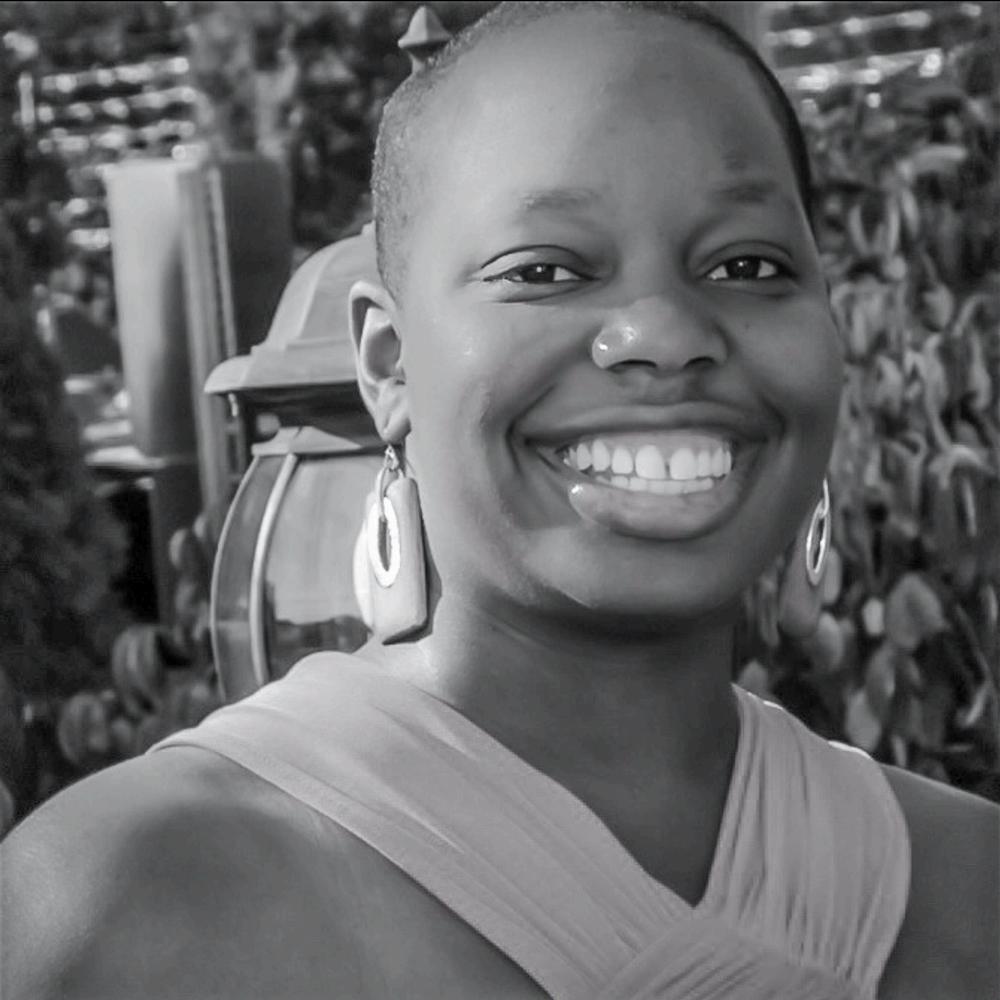
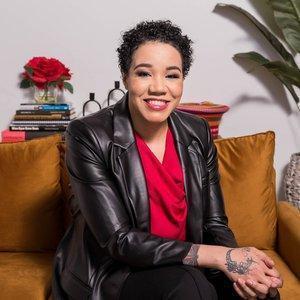
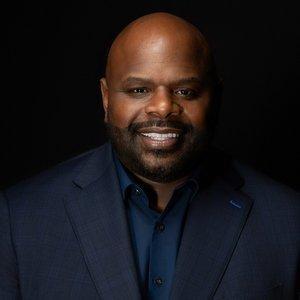
Pricillia Kounkou-Hovey is an Atlantic Fellow for Racial Equity. Priscillia is a Black Iranian filmmaker (“Where My Memory Began, We Will Be Who We Are") and creative director- Collective for Black Iranians, Siyah Productions. Her work explores the points of view, stories and histories of marginalized identities.
Refiloe Lepere is an Atlantic Fellow for Racial Equity. Refiloe is a gender scholar playwright, storyteller and community-accountable theater-maker whose work explores Black feminist theater aesthetics, Ubuntu aesthetics and racial justice. She is a senior lecturer at the University of Witwatersrand, Johannesburg.
Karen Marshall is an Atlantic Fellow for Racial Equity. Through her work at Rethink New Orleans, Karen’s work focuses on organizing to strengthen Black working-class people’s power and collective agency against systems of hyper-exploitation.
Sheena Mason is an Atlantic Fellow for Racial Equity. Her work focuses on developing innovative ideas and frameworks that enable positive cultural identity and contribute to non racialization.
Ben McBride is an Atlantic Fellow for Racial Equity whose work focuses on engaging in practices that deepen community networks and foster belonging, prevent gun violence and improve public safety systems.
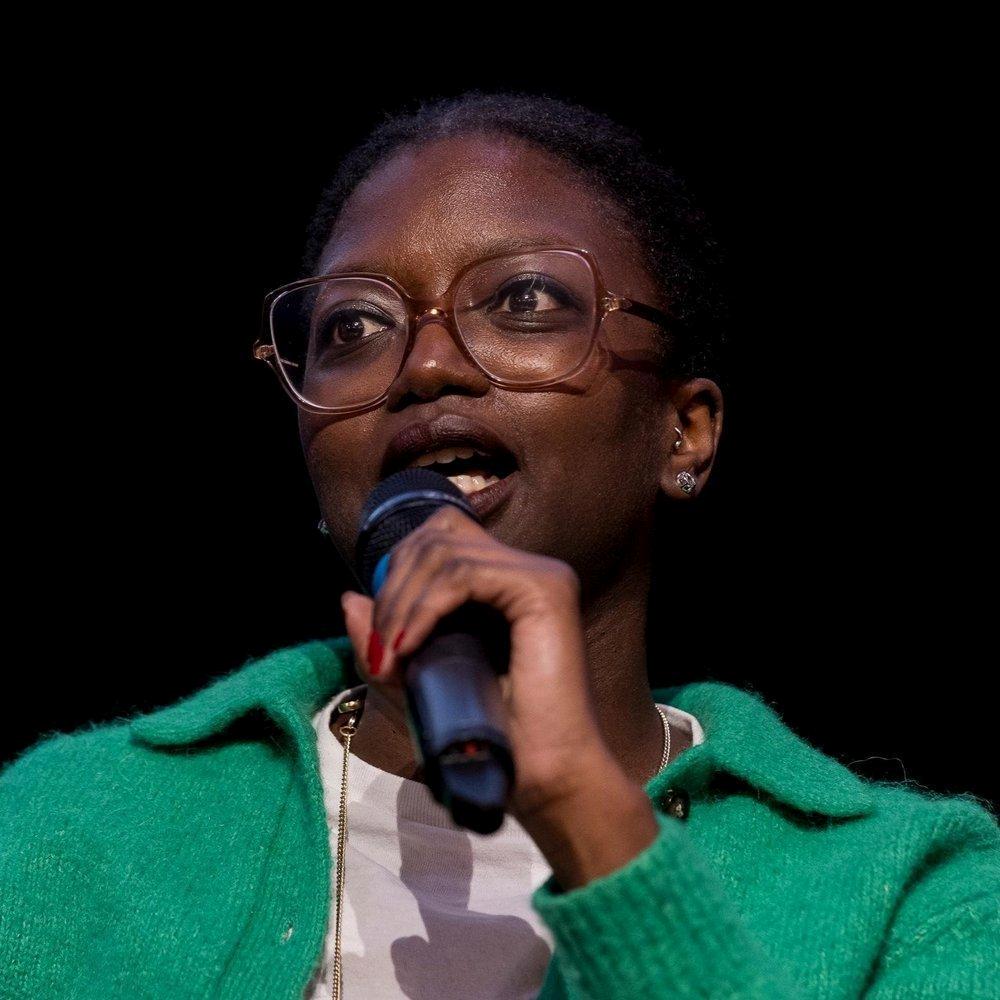
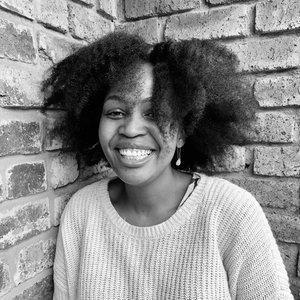
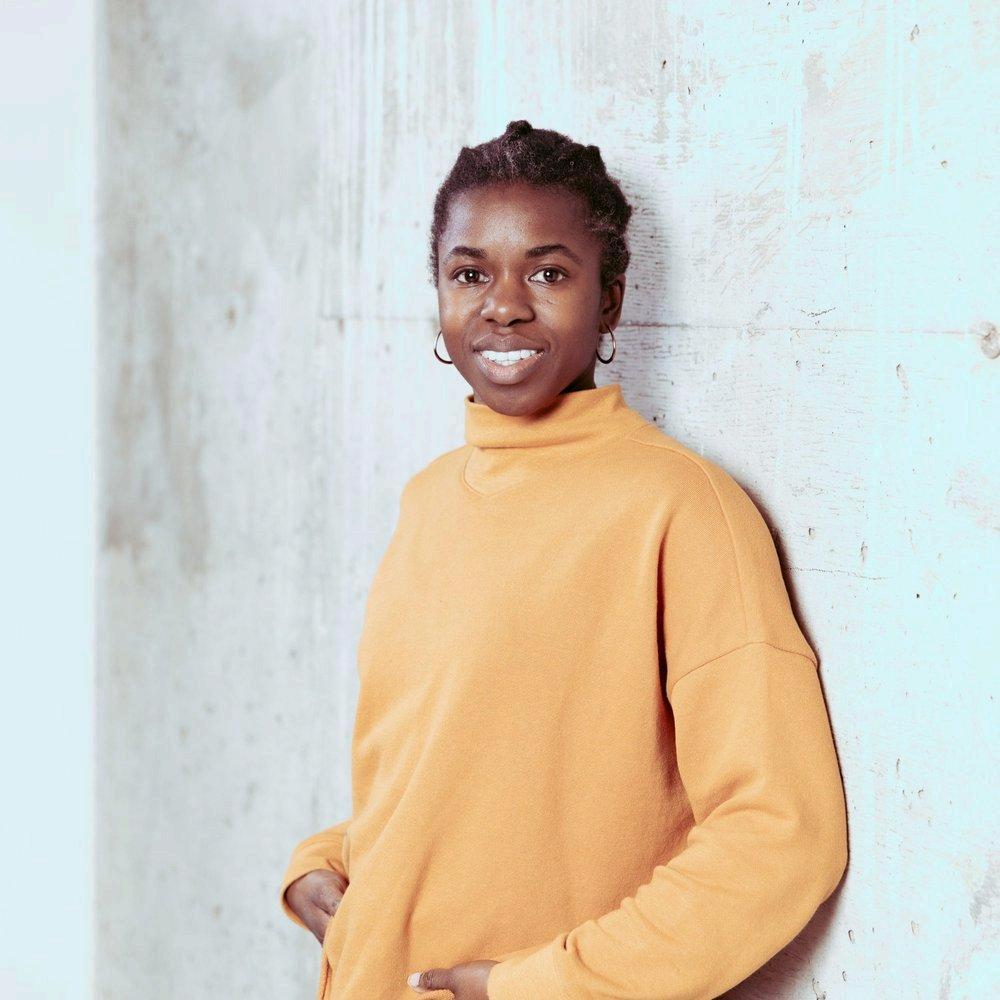
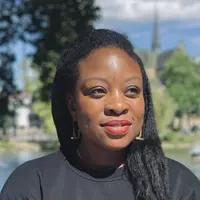
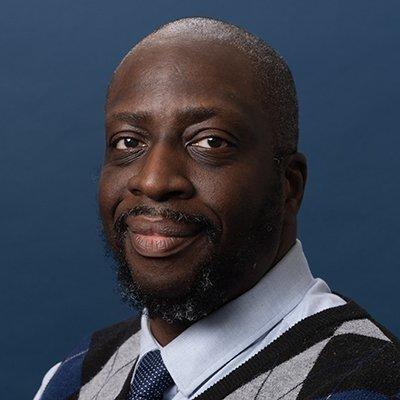
Laurence Meyer is an Atlantic Fellow for Racial Equity. She is the co-director of Weaving Liberation, an entity supporting digital justice organizing in Europe. She co-led the “Decolonising the Digital Rights Field” process. She is the co-founder of the Ẅ XOOL (wou Rol) film festival.
Mathapelo Mofokeng is an Atlantic Fellow for Racial Equity. She a storytelling-for-impact and advocacy facilitator, and offers care for people before, during and after their abortions.
Abigail Moriah is an Atlantic Fellow for Racial Equity whose work focuses on building and reimagining spaces that prioritize Black experiences and community engagement in planning and development, with the goal of redefining how planning is done in communities through practice and research.
Ojeaku Nwabuzo is an Atlantic Fellow for Racial Equity. She leads on policy, advocacy and network development that advance anti-racism and anti-discrimination efforts, with a particular focus on the criminal legal system and people of African descent.
Adeoti Oguntoye is an Atlantic Fellow for Racial Equity. He works as a program officer at the Annie E. Casey Foundation, with a focus on improving the economic outcomes for residents on the south side of Atlanta.

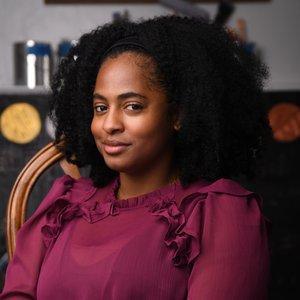
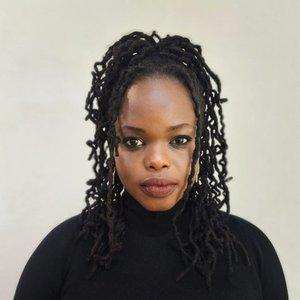
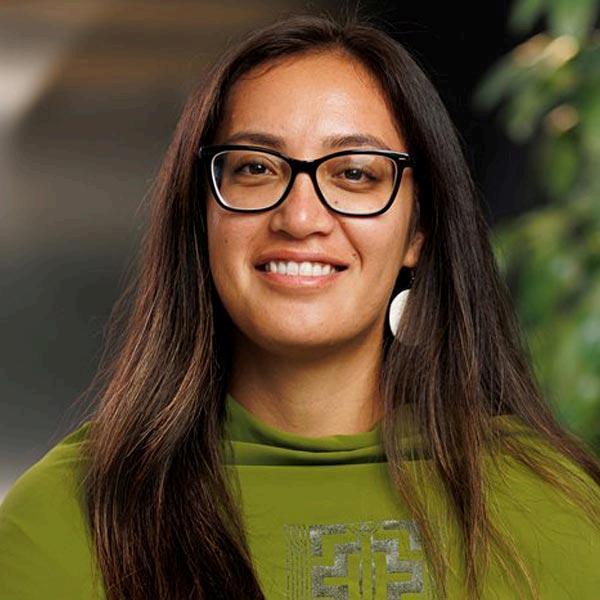
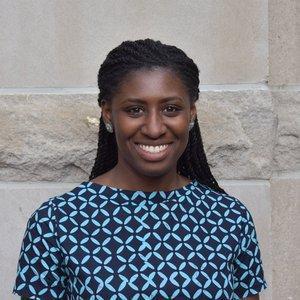
Clara Pereira is an Atlantic Fellow for Racial Equity whose work as a planning and budget analyst contributes to national policy for the advancement of racial justice and gender equity in Brazil.
Jessica Ré Phillips is an Atlantic Fellow for Racial Equity. Ré is a multidisciplinary artist, impact strategist and researcher exploring Afro-diasporic identity, politics and the human condition. She co-founded Root to Bloom, a social enterprise helping creatives and entrepreneurs of color thrive.
Mandisa Shandu is an Atlantic Fellow for Racial Equity. Mandisa’s work focuses on employing academic research, legal advocacy and strategic litigation toward ensuring justice and freedom in the context of deepening racial, gendered, spatial and economic inequality with a focus on land redistribution.
Cheyenne Te Kupai Heke is an Atlantic Fellow for Social Equity Cheyenne actively advocates for the fair and equitable access to holistic well-being for Māori as Indigenous people.
Eleanor Thompson is an Atlantic Fellow for Racial Equity. She is a public interest lawyer and founder of Citizens’ Barray, a social justice movement-building platform in Sierra Leone. She helps communities protect their rights while influencing legal reform through human rights cases and groundbreaking laws.
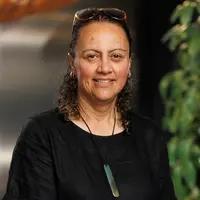
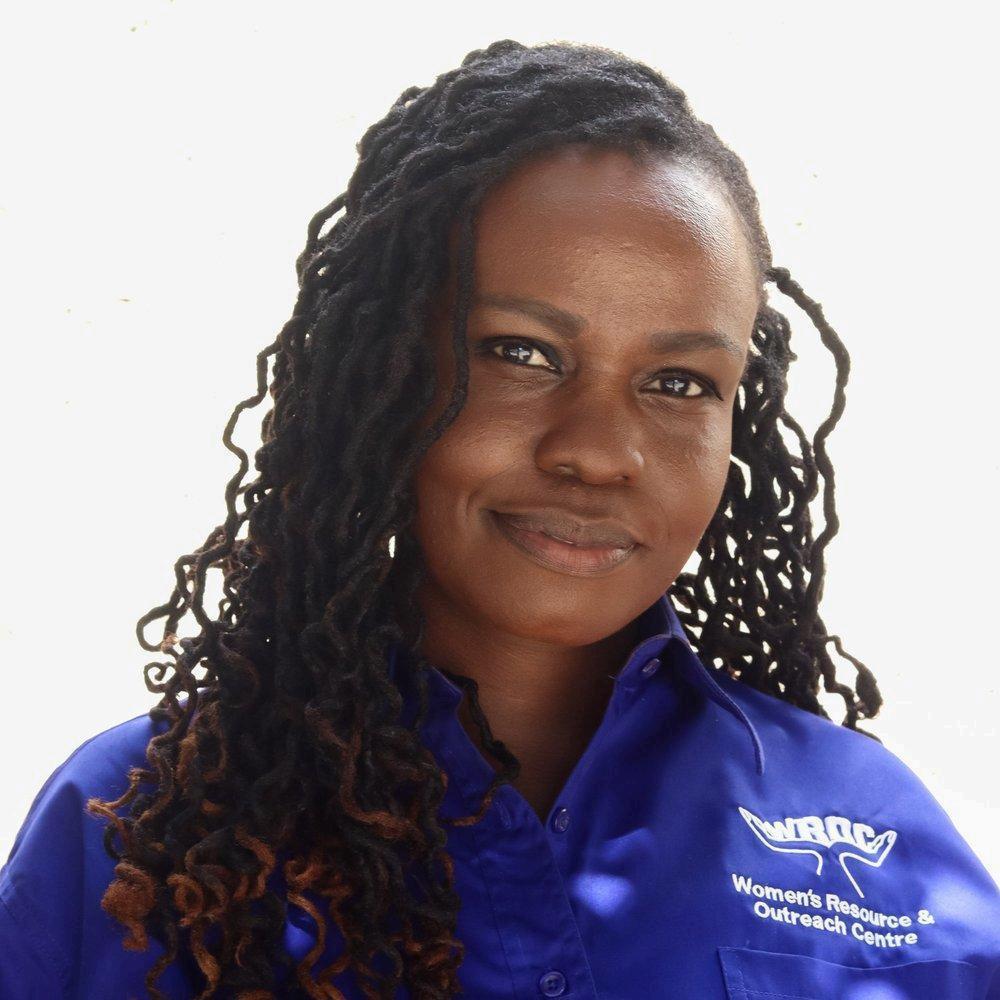
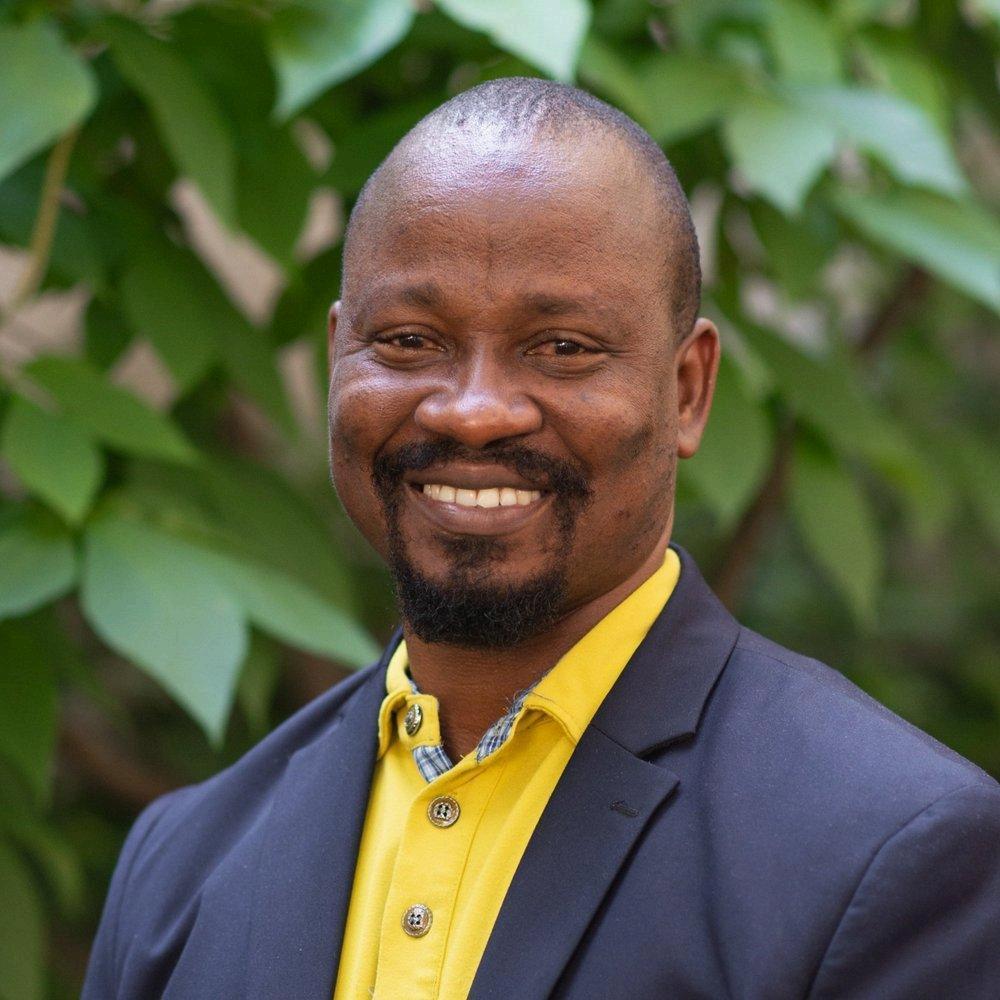
Moana Timoko is an Atlantic Fellow for Social Equity. Moana works as an educator within her community of Kaikohe. Creating spaces for transformative learning, and reclamation of ancestral scientific knowledge is a focus as Moana believes in giving people time and space to think, plan and learn.
Keisha Williams is an Atlantic Fellow for Racial Equity. She is the executive director of The Women’s Resource Outreach Centre, which works on amplifying marginalized voices and dismantling systemic barriers, through facilitation, advocacy, research and monitoring and evaluation, with an unwavering commitment to community development.
W. Lawrence Yealue II is an Atlantic Fellow for Racial Equity He leads and facilitates the realization of active citizenship, responsible leadership and accountable institutions, with an additional commitment to advocating for peace and youth development.
GLOBAL ATLANTIC FELLOWS ADVISORY BOARD

Dela Wilson is an Atlantic Fellow for Racial Equity, and a member of the Global Atlantic Fellows Advisory Board (GFAB). Dela’s work leads on strategies to cultivate expansive visions for self and society through public memory and reparative design.
ATLANTIC FELLOWS PROGRAM STAFF
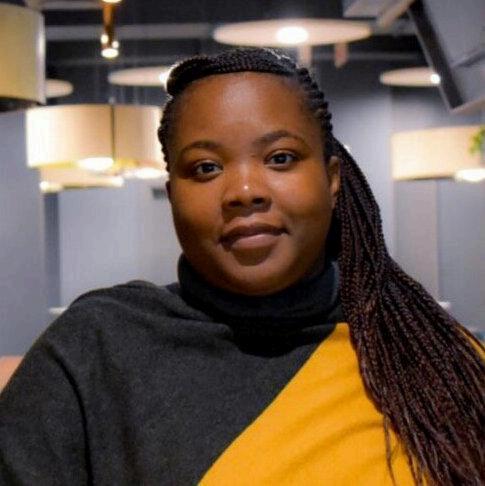
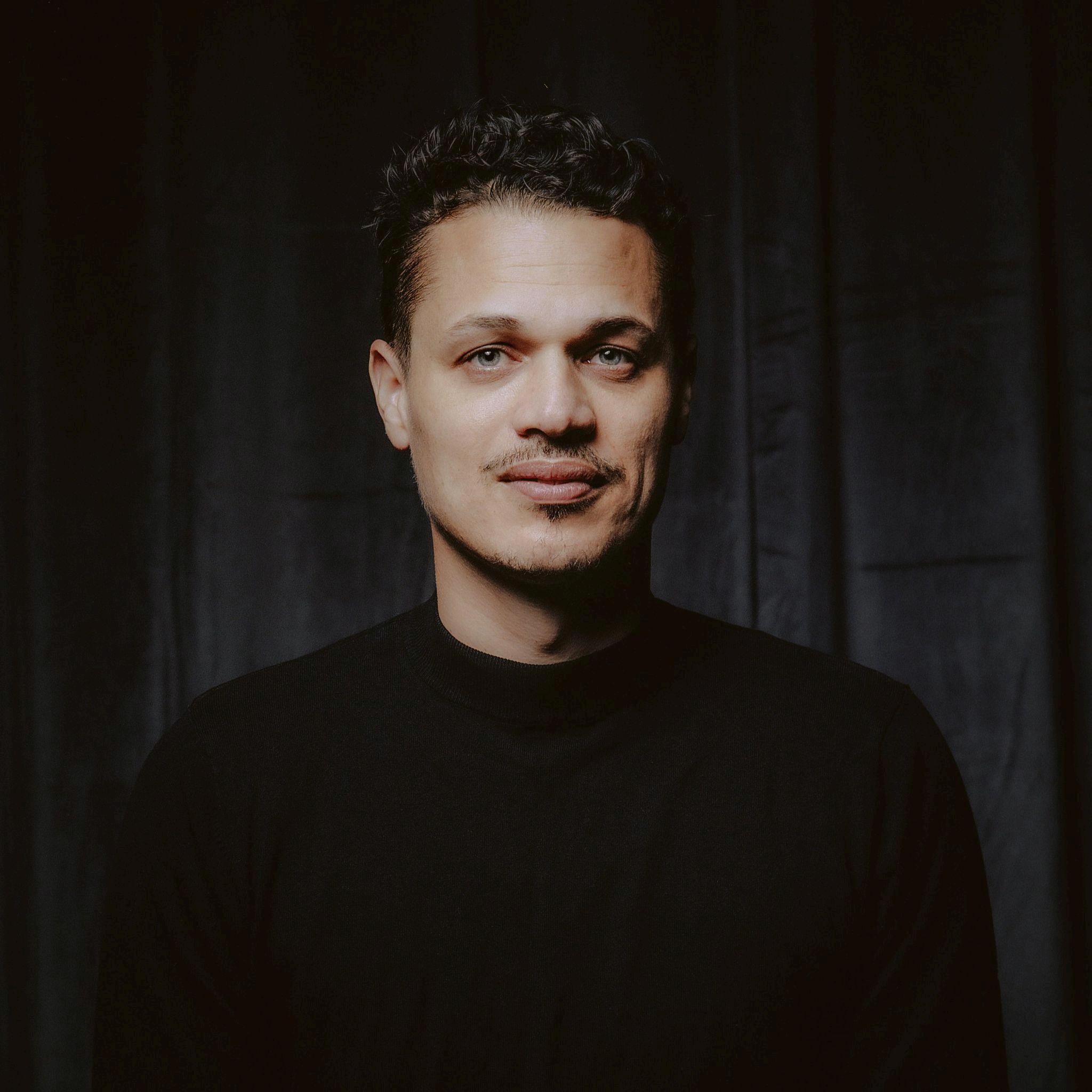
Nolwazi Mbuli is the senior programme manager at the Atlantic Fellows for Racial Equity (AFRE). Nolwazi manages the production of AFRE's magazine, Moya, and their podcast, Race Beyond Borders. She also manages the development of AFRE’s IDEA Labs, such as the Senior Fellows Institute, and assists the Nelson Mandela Foundation’s Dialogue and Advocacy programme with coordination. In addition, she coordinates all aspects of the fellowship at AFRE, to support a successful experience for Fellows, including implementation of the virtual and immersive retreats and the administration of scholarship payments.
Nigel Richard is the senior programme director and facilitator at the Atlantic Fellows for Racial Equity program. Nigel leads AFRE’s leadership development support for Fellows, including coaching and project development, and he co-facilitates fellowship sessions including both the virtual and immersive retreats.
ATLANTIC INSTITUTE STAFF
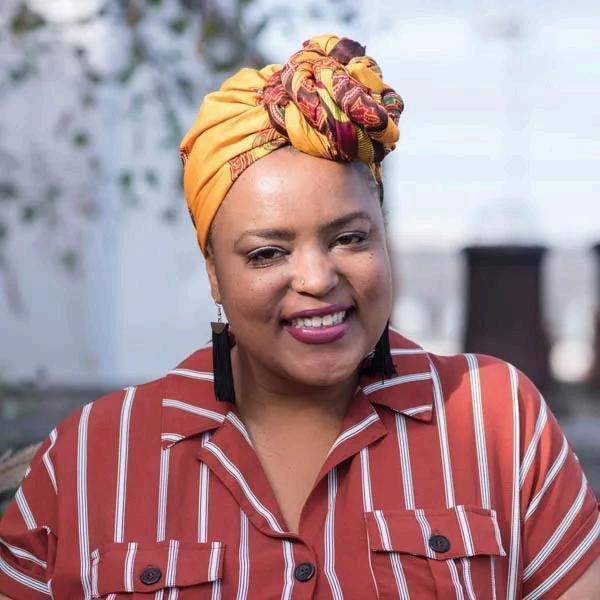
Tanya Charles is the senior program and impact lead at the Atlantic Institute. Tanya is an African feminist who has years of experience working to advance women’s rights, gender equality and social justice across Africa and globally. She has expertise in research, policy development, curriculum design and relationship management. Tanya is an Atlantic Fellow for Social and Economic Equity 2018-19. At the Atlantic Institute, she provides strategic support to the Global Atlantic Fellows Advisory Board (GFAB) has managed the flagship Global Atlantic Fellows Annual Convening, and develops programming (webinars, skills training and place-based) for Atlantic Fellows and staff
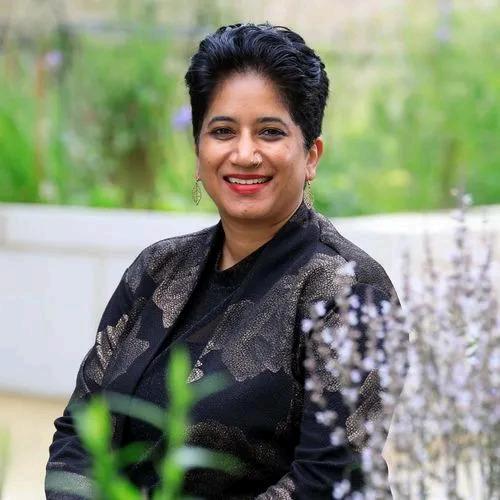
Lysa John is the executive director of the Atlantic Institute. Lysa has a background in human rights, international development and social justice, with over 25 years of experience working for grassroots, national, and global networks. She has designed and coordinated programs, campaigns and advocacy initiatives aimed at empowering communities, holding governments accountable and advancing sustainable development. In her most recent role as secretary general of CIVICUS, she led a global alliance of civil society organizations and activists working to strengthen citizen participation and defend civic freedoms. Other professional highlights include working with urban poor movements in India, leading transnational campaigns for the Millennium Development Goals, serving as the head of Outreach for the UN panel that drafted the Sustainable Development Goals and working as the global campaigns director at Save the Children. She contributes to the work of several remarkable networks as a board member, including the International Budget Partnership, the Global Partnership for Sustainable Data Development and the World Benchmarking Alliance.
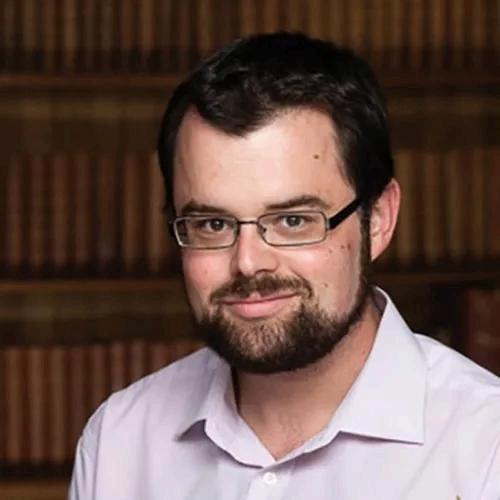
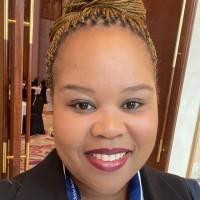
David Mallinson is a team coordinator (Convenings) at the Atlantic Institute. He provides operational and administrative support to the Atlantic Institute team to ensure the smooth running of its meetings, events and special projects. Previously, he worked in events at Oxford Brookes University and as a primary school teacher.
Patronella Nqaba is a program and impact lead at the Atlantic Institute. She is part of the team seeking to develop the Atlantic community and broaden its global impact, particularly in strengthening the links with Atlantic Fellows who live in Africa or have links with the continent. Previously, she was the network director for Atlantic Fellows for Racial Equity and also held a leadership position at the Nelson Mandela Foundation (AFRE’s anchor partner). At AFRE, she led the program’s strategic outreach to identify and recruit applicants from diverse international networks and communities and led the program’s Senior Fellow community She also contributed to network development and program planning. At the Nelson Mandela Foundation, she conducted analysis on governance and social activism and supported the Foundation’s anti-racism activities and efforts to build democracy.
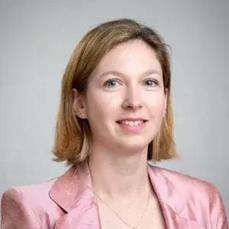
Matilda Becker is the strategic partnerships manager at Oxford Net Zero. Matilda’s role involves coordinating across Oxford Net Zero’s strategic partnerships in policy, civil society, business and standards, to accelerate net zero integrity and accountability at the international and organisational levels. She works alongside colleagues to produce briefings, reports and interdisciplinary research on net zero regulation. Matilda’s main interests lay in stakeholder engagement and working within networks of businesses and academics to realise meaningful and sustainable solutions to issues affecting communities and environment at the local and global scales. Matilda brings an academic and policy background to the role, previously working for the business and academic member organization, Cambridge Ahead. Matilda completed her doctorate in Geography and Environment at the University of Oxford in 2021. Her research explored the expansion of mineral resource development in Arctic Canada, and assessed the impacts of engagement mechanisms on public trust and support for resource development. Matilda also holds an M.Sc. in Water, Science, Policy and Management, also from the University of Oxford.
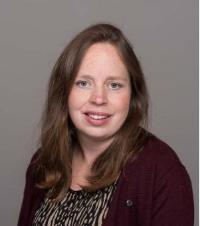
Faye Belsey is the Senior Assistant Curator and Deputy Head of Collections at the Pitt Rivers Museum. Faye joined the Pitt Rivers Museum in 2008 as Collection Move Manager for the project ‘Taking the Past into the Future', redeveloping the entrance of the Pitt Rivers Museum. Since then, Faye has worked in various roles in the ethnography and archaeology section of the Pitt Rivers Museum and has contributed to numerous collections research and digitisation projects, including 'Haida Material Culture in British Museums: Generating New Forms of Knowledge', 'Characterising the World: Archaeology Collections of the Pitt Rivers Museum' and 'Small Blessings: Amulets at the Pitt Rivers Museum'. Most recently she has worked with the Evenki community on the project ‘Wandering in Other Worlds’ which involved a reconciliation ceremony held at the Museum and an indigenous curated redisplay of shamanic Evenki material culture. Faye has also led on repatriation efforts, returning ancestral remains to Aotearoa New Zealand and Australia, and the first cultural object to the Kenyah Badeng community in Sarawak in November 2024.

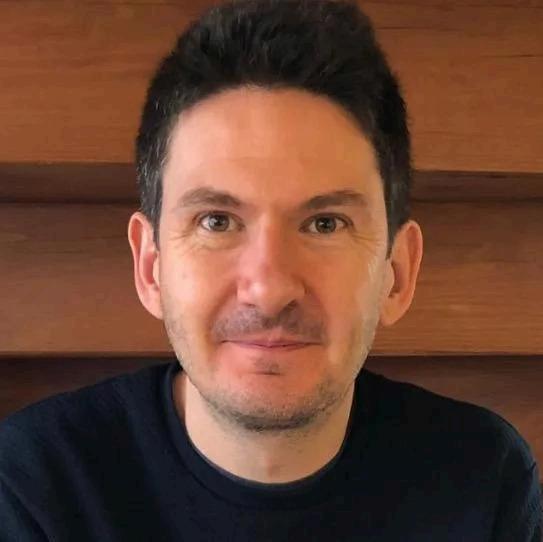
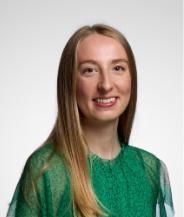
Aleena Din is a social historian of modern Britain. She is a senior research associate for the digital humanities project, “Remaking Britain: South Asian Connections and Networks, 1830 to the Present,” at the University of Bristol. She is also a research associate at the University of Oxford, where she co-leads the community history project, “A Muslim History of Oxford,” in collaboration with the heritage organization, Everyday Muslim, and the Univeristy of Oxford’s Faculty of History’s Community History Hub. “A Muslim History of Oxford,” which will create a digital archive collection of original oral history interviews and materials related to Oxford’s Muslim histories, aims to re-assess social histories of modern Britain by capturing lesser-known experiences of migration, family, community, activism and labor amongst Oxford’s Muslims from the late 19th century to the present. Central to this is community-led co-productive approaches, to ensure the collection embodies a diversity of Muslim experiences along race, class, gender and generational lines.
Dr David Kerr is the programme manager of the Africa Oxford Initiative (AfOx). David is responsible for managing AfOx programs and supporting the development of partnerships with universities and research institutions. AfOx supports a wide range of activities including a travel grant scheme and visiting fellowships for African academics, supporting high quality meetings and providing academic and mentorship support to African students and research staff in Oxford. Prior to joining AfOx, David was a postdoctoral research fellow at the University of Johannesburg where his research focused on street performance in Dar es Salaam.
Bryony Smerdon is the assistant curator (Visiting Researchers) at the Pitt Rivers Museum, University of Oxford. Bryony joined the Pitt Rivers Museum as a collections database assistant in June 2022. In this post, she managed the collections management system MuseumPlus, training and supporting database users, as well as working collaboratively with traditional knowledge holders to improve the accuracy of object records. Since June 2023, she has been responsible for facilitating access to the museum’s object collections and coordinates the department’s busy schedule of community visits and research appointments. She is passionate about making cultural material accessible both physically and digitally, and works with visitors from around the world to share and build knowledge about the collections. In addition, Bryony ensures that cultural care and cultural protocol is factored into every aspect of museum practice, particularly when storing, displaying, handling and researching cultural belongings and sensitive collections.
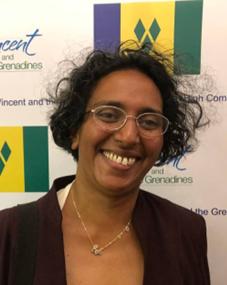
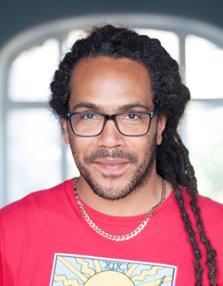
Melissa Latchman - Flo’s Cafe: Melissa joined the Flo’s team as the first maternity advocate (and community organizer)on the Equal Start Oxford project in February 2023 before moving into the Communities manager role in October 2023. Melissa is passionate about improving the lives of families who are left behind by the economic disparities in Oxford. She has a background of rights- based work embedded in these communities and held roles at organizations that include the Leys Community Development Initiative and AFIUK.
Rawz is a multidisciplinary artist from Oxford. His practice centers around words and music, and is rooted in social justice and the exploration and understanding of our interconnected worlds. Through art, Rawz shares his exploration of interconnection and interdependence, of the human experience. His responses promote outer change and advancement through inner reflection, and positive action. Often inspired by juxtaposition, and looking at the common ground shared by elements that are usually considered to be unrelated or opposed to one another, Rawz presents cohesive comparisons and connections regarding aspects of life that can conventionally be viewed as disparate. An experienced Youth Worker and Teacher, swiftly becoming an expert in the fields of Decolonisation and Public Engagement within a range of academic disciplines; Rawz set up The Urban Music Foundation in 2009. Under this banner he delivers a wide range of creative activities in a variety of settings.
